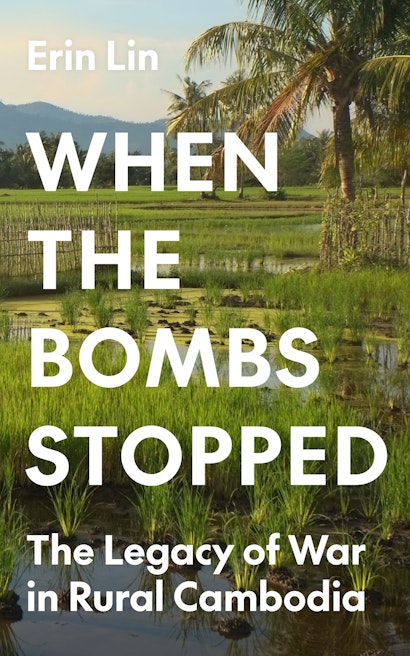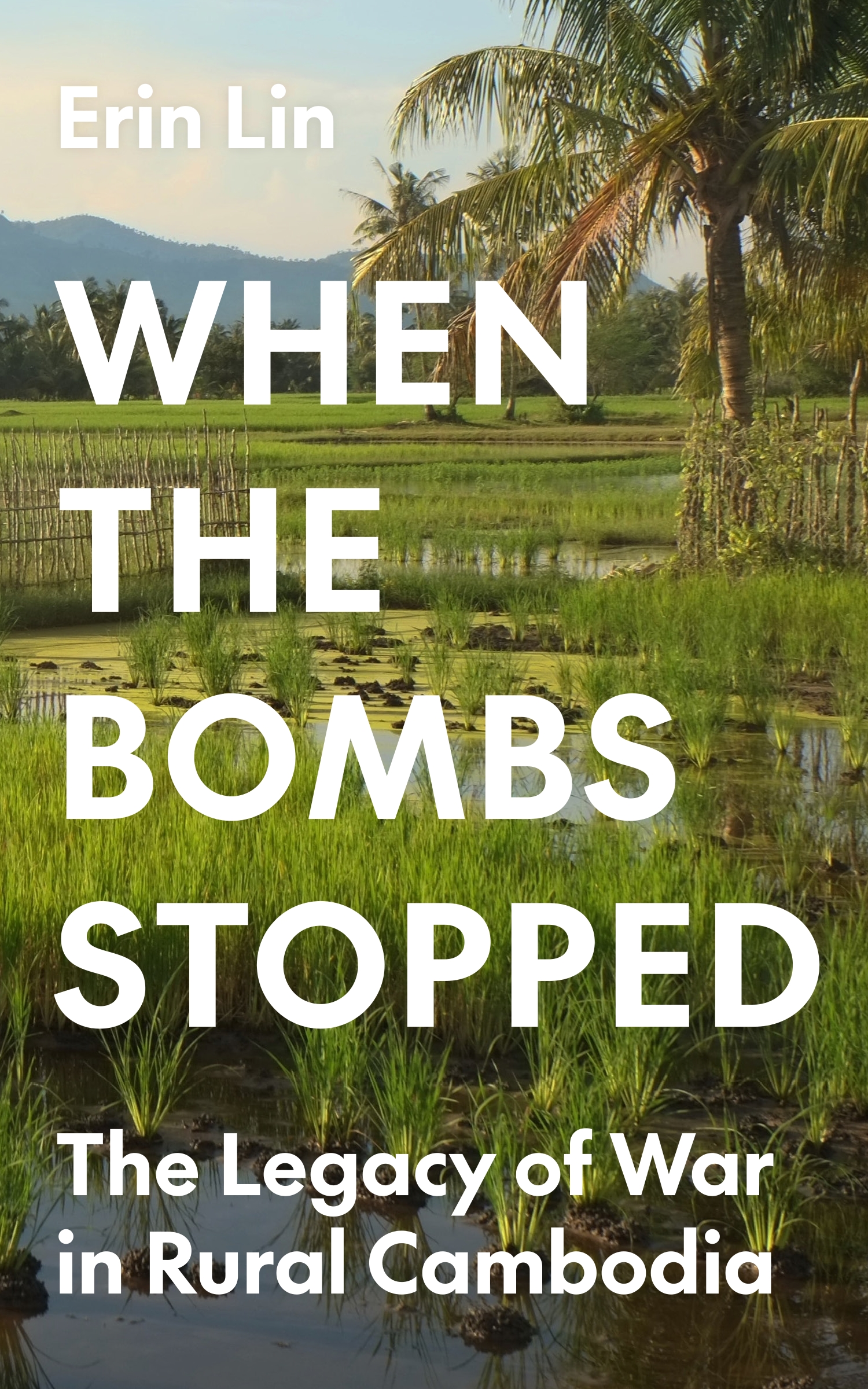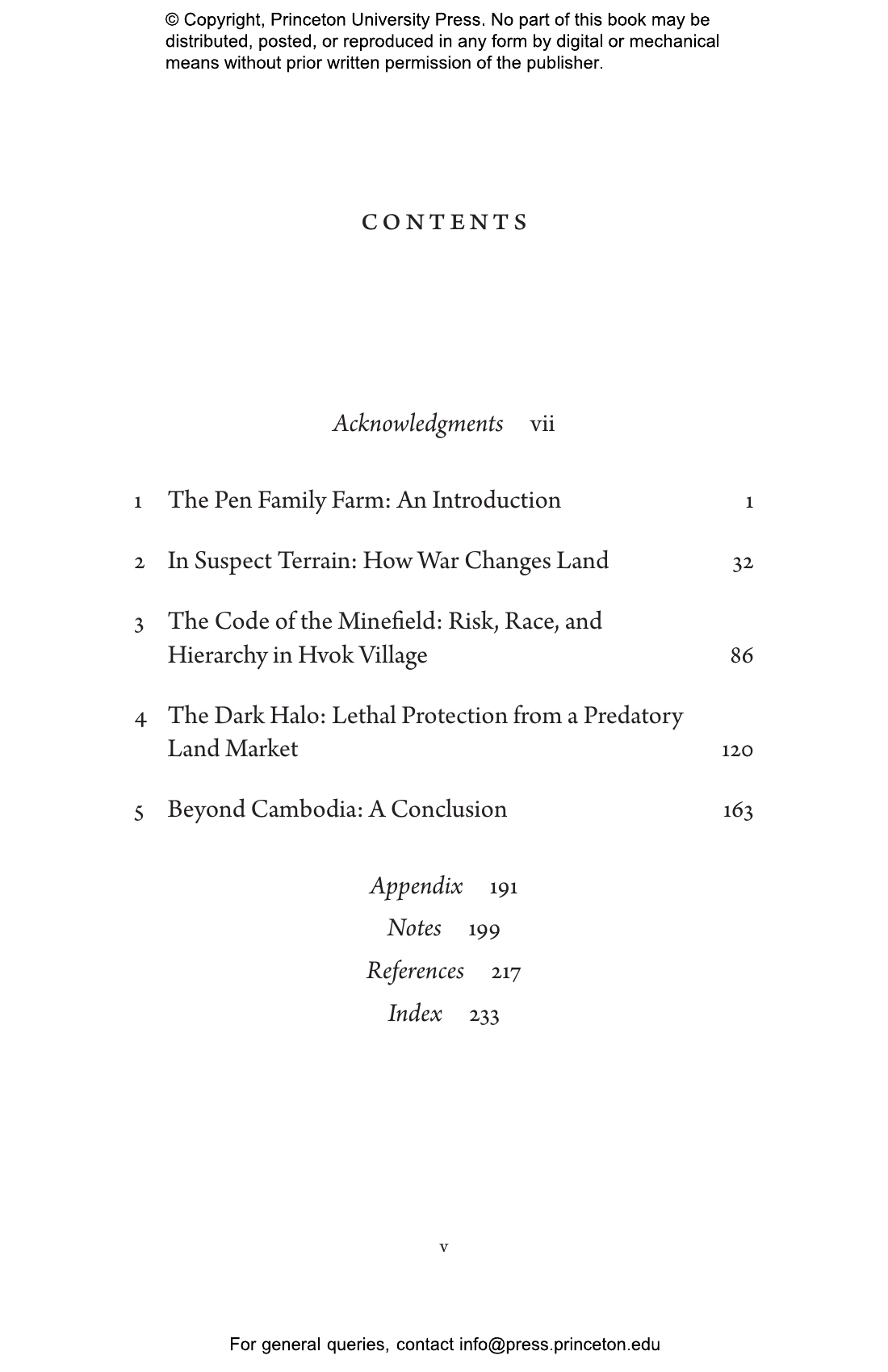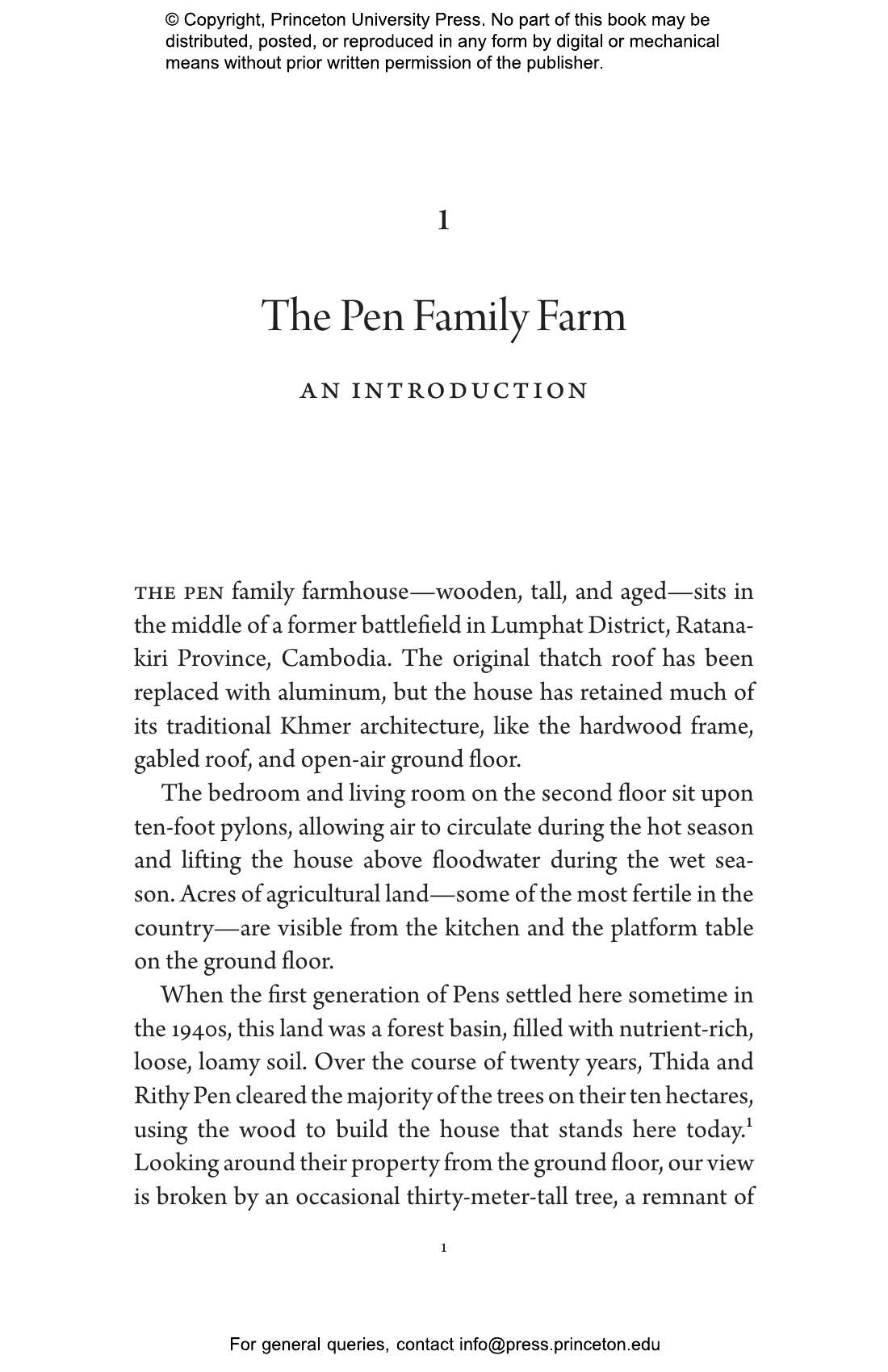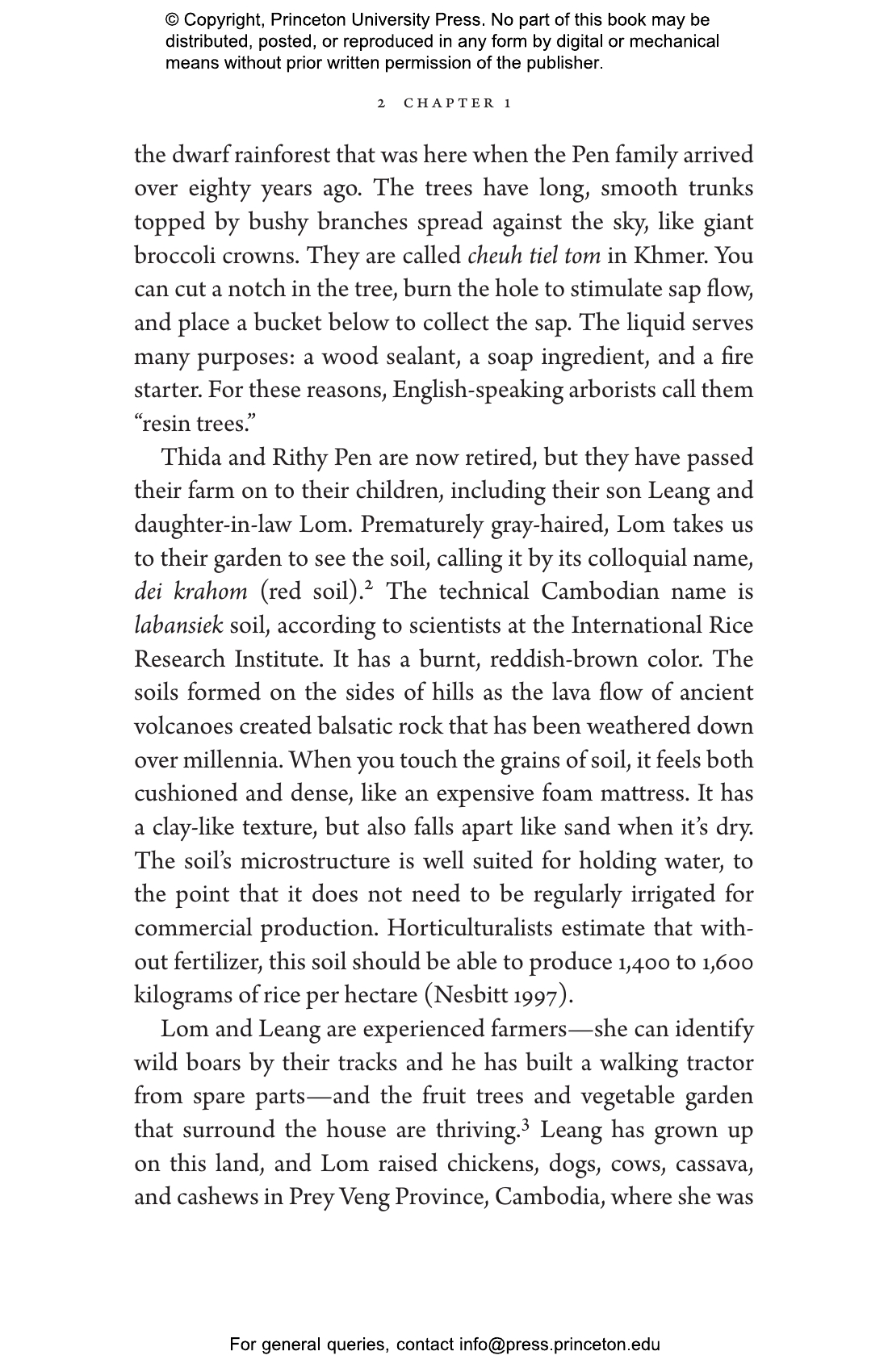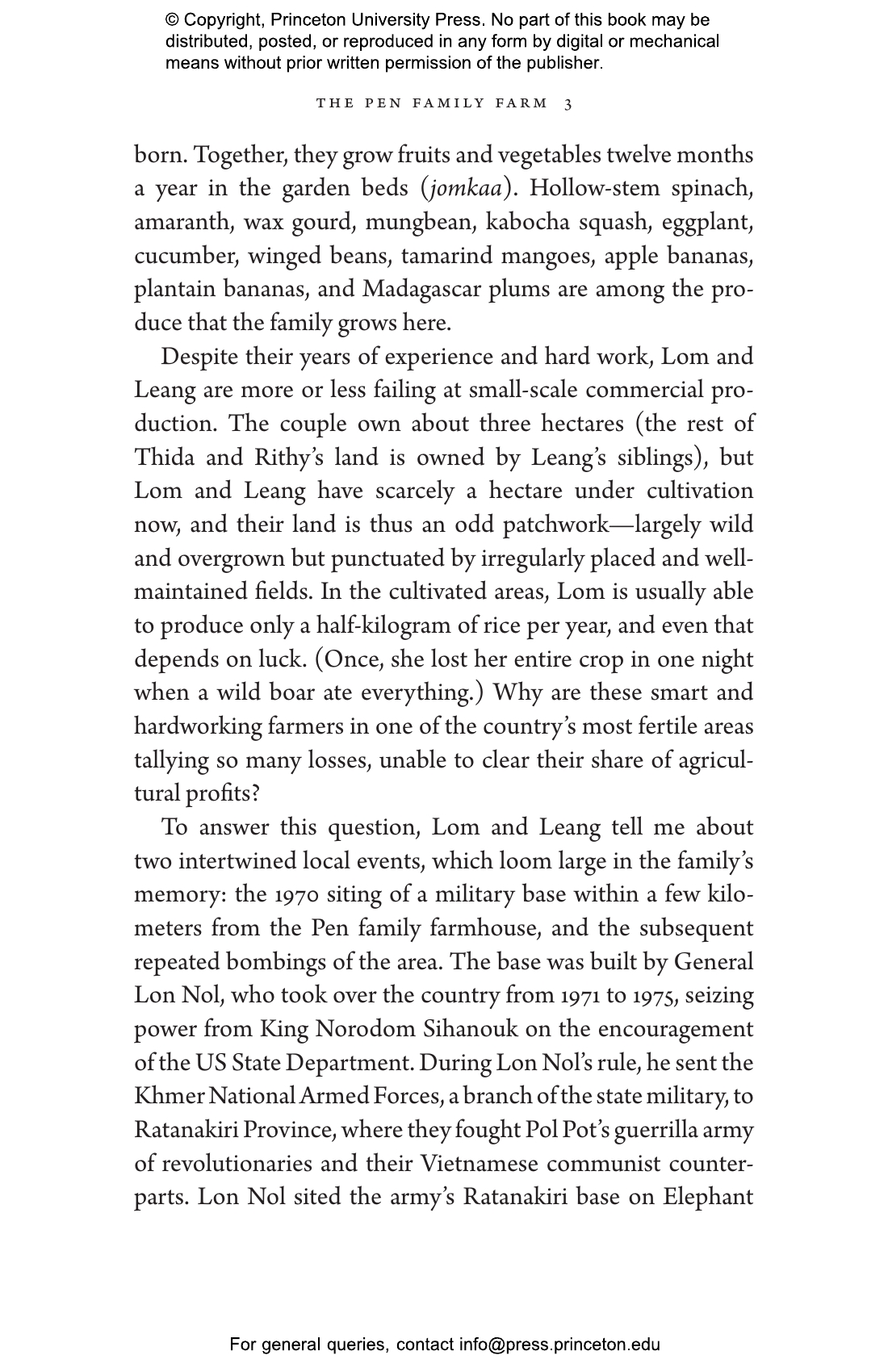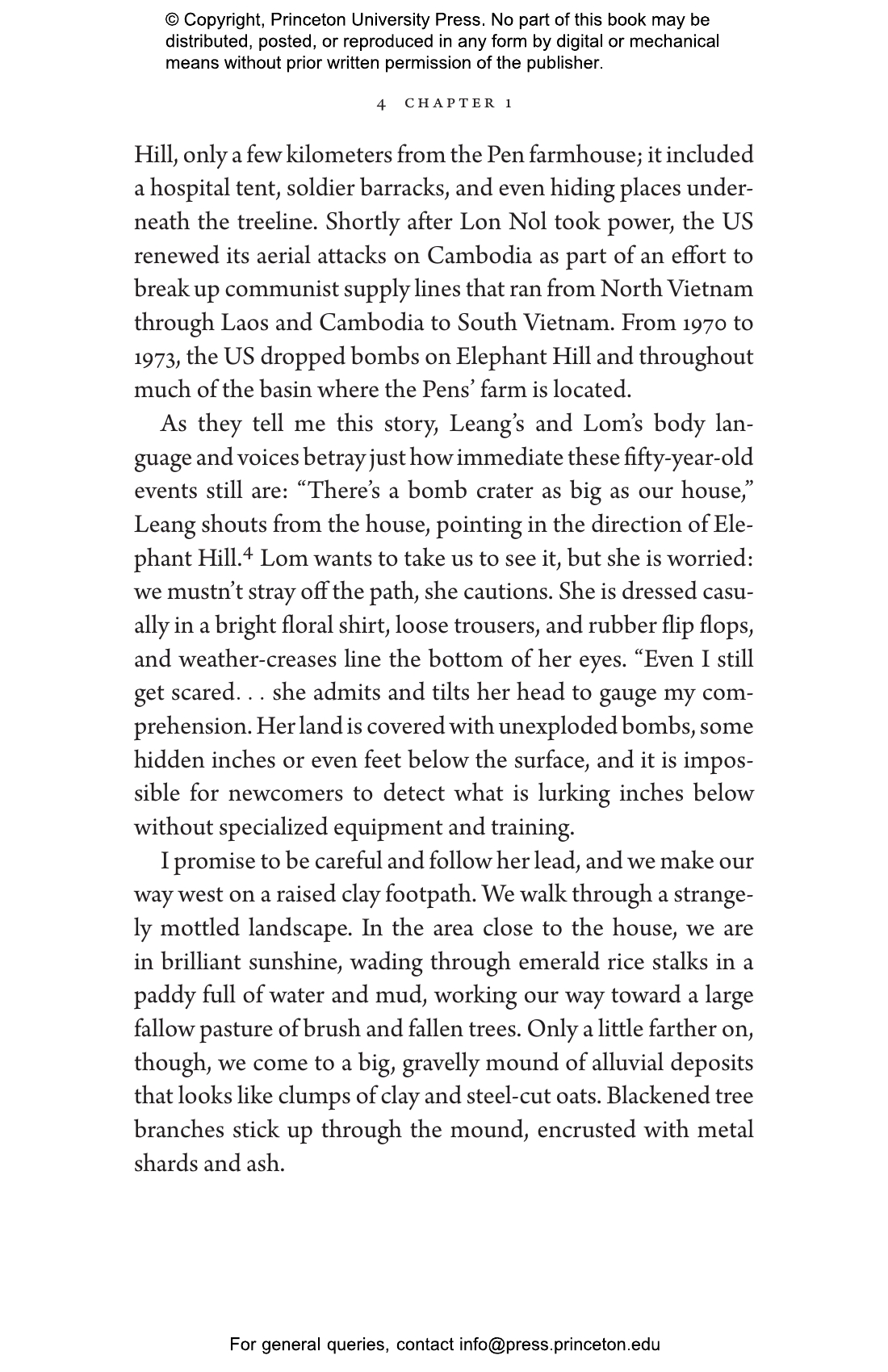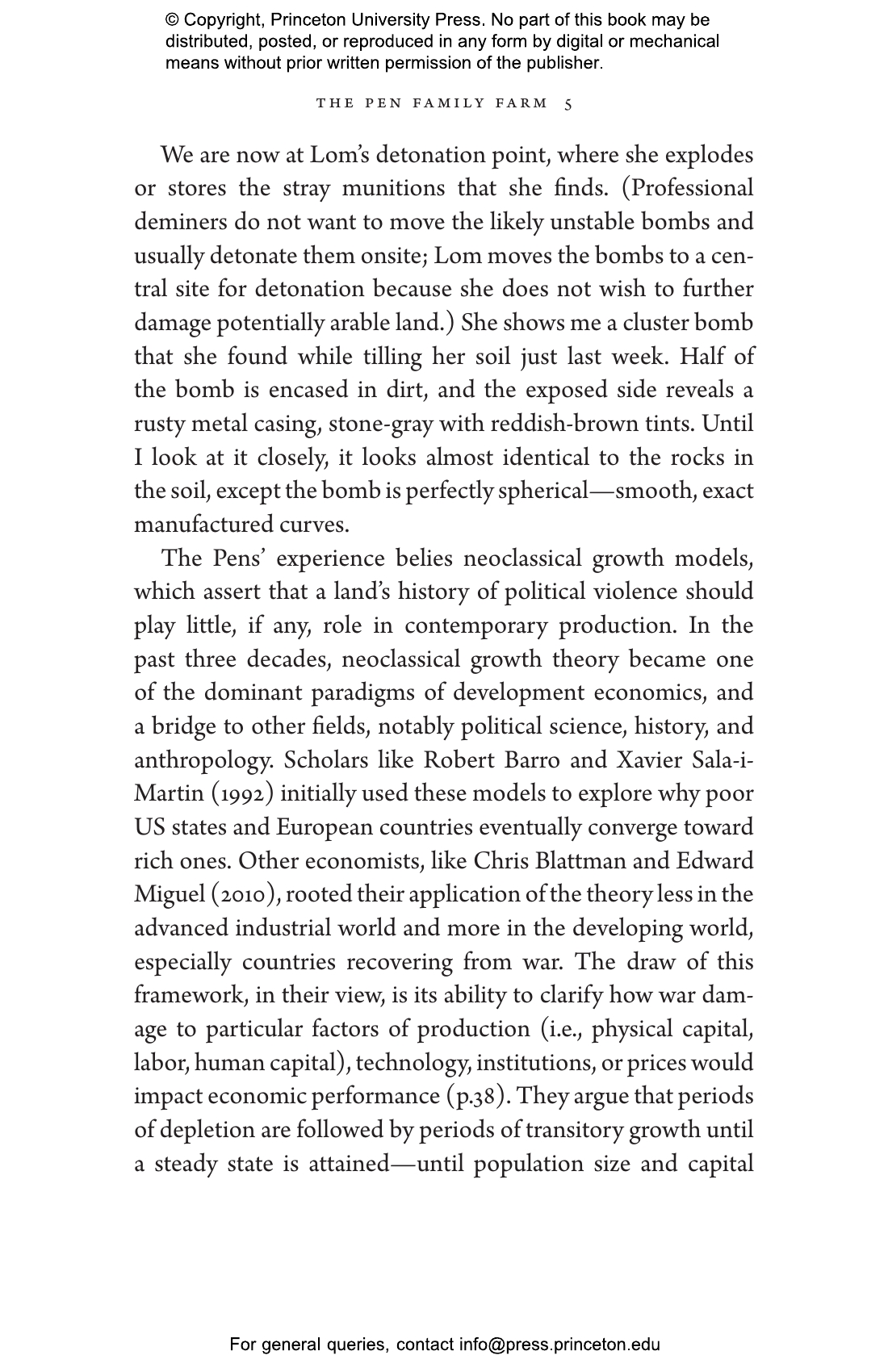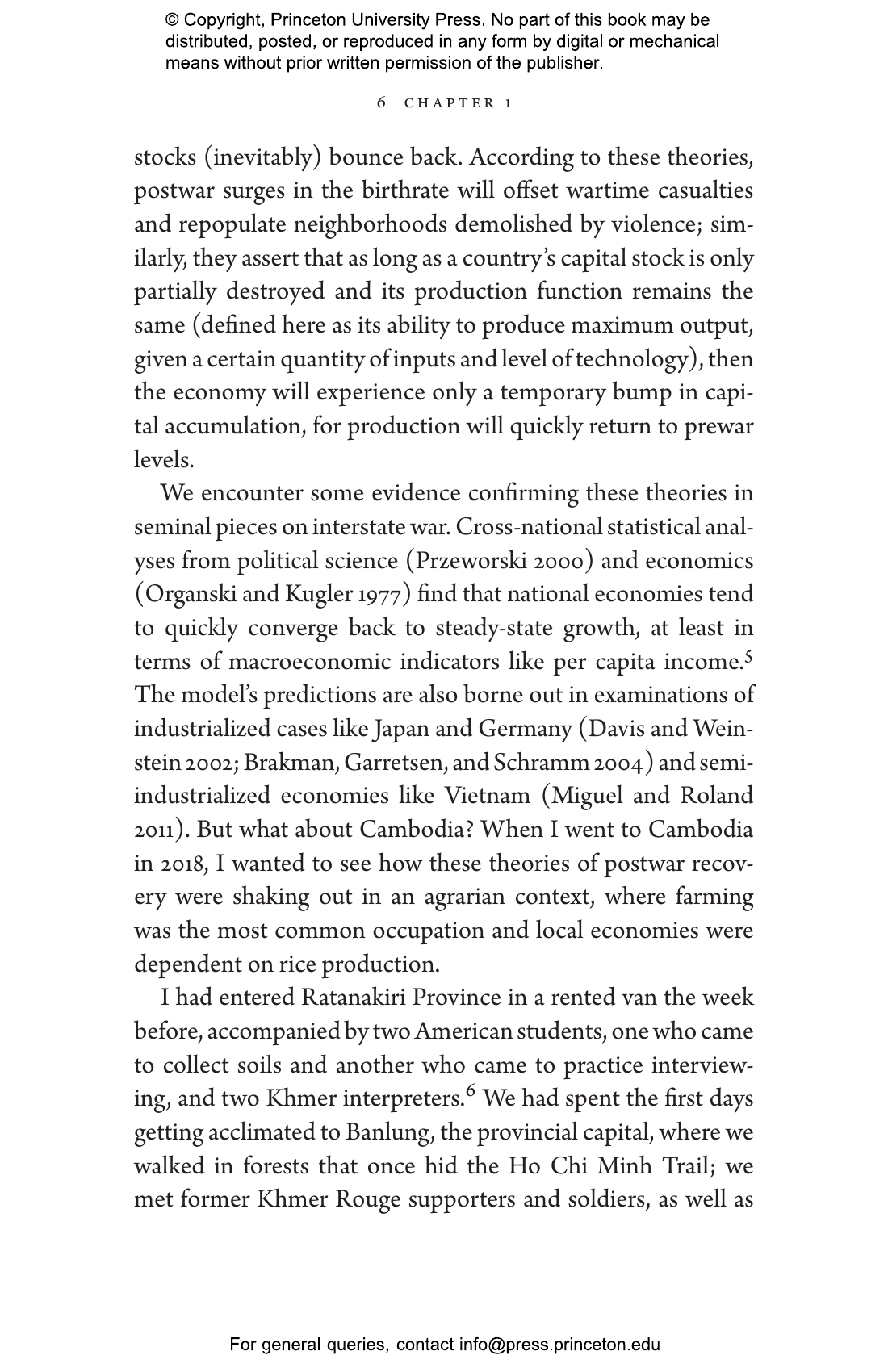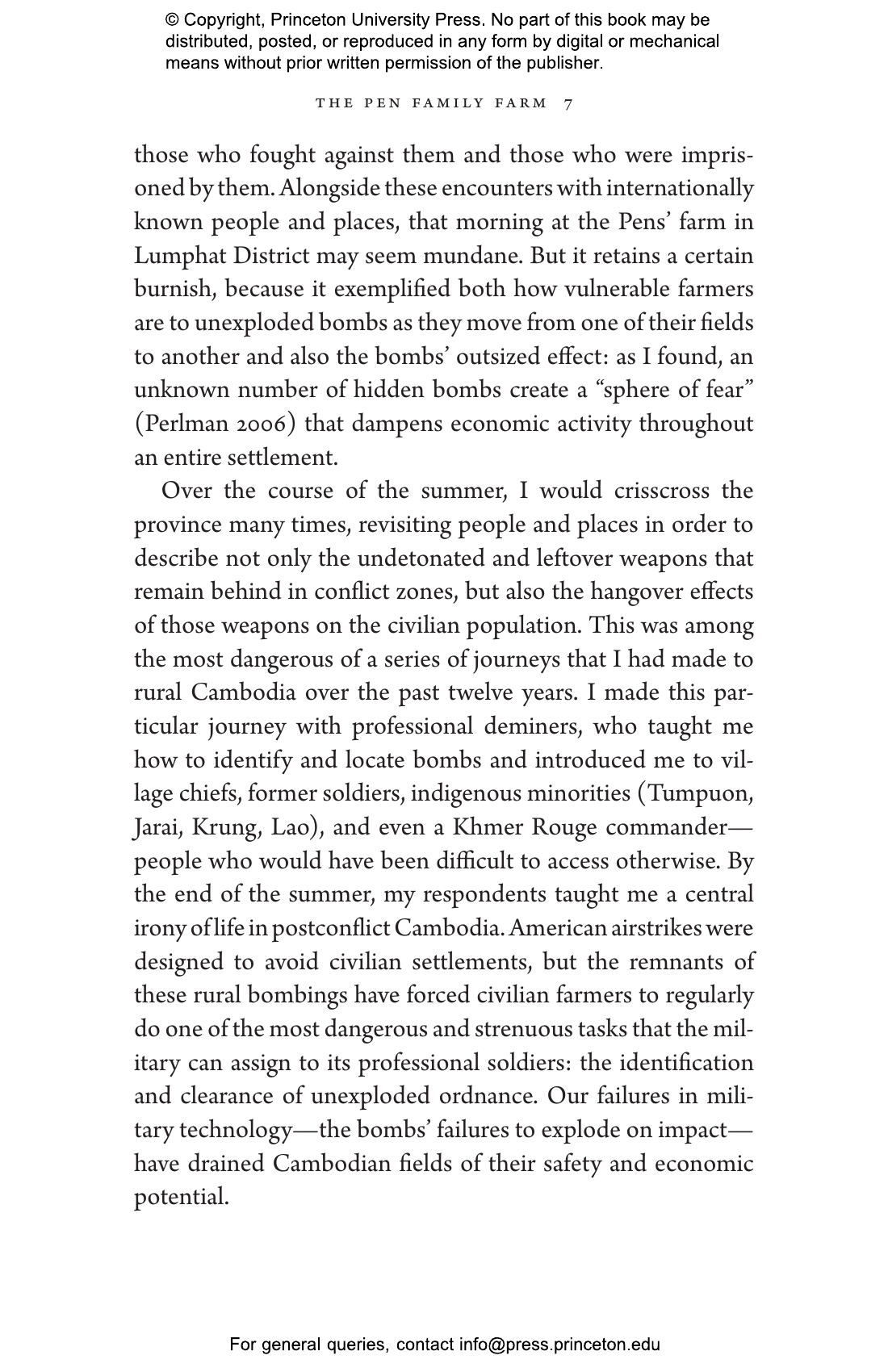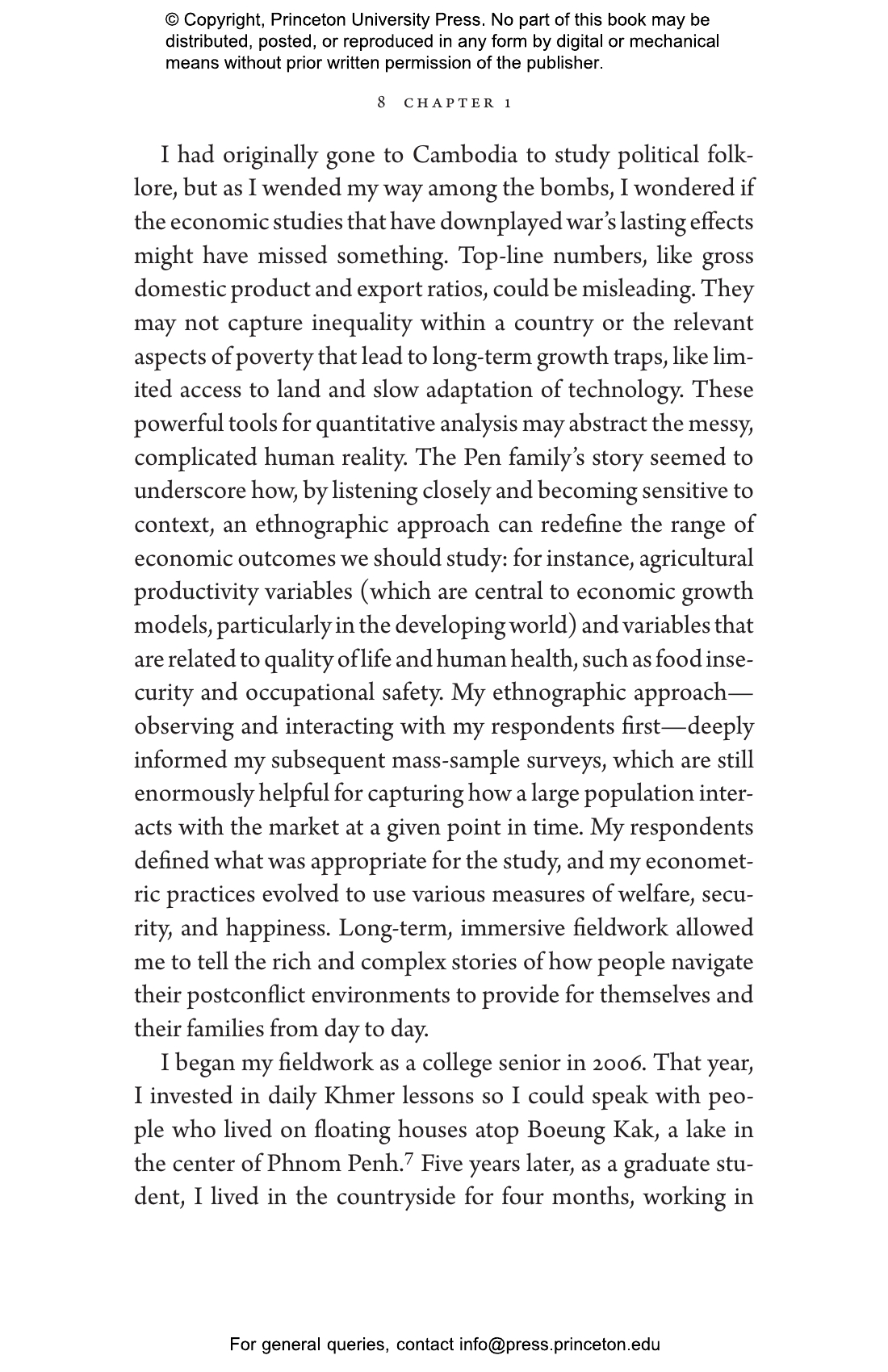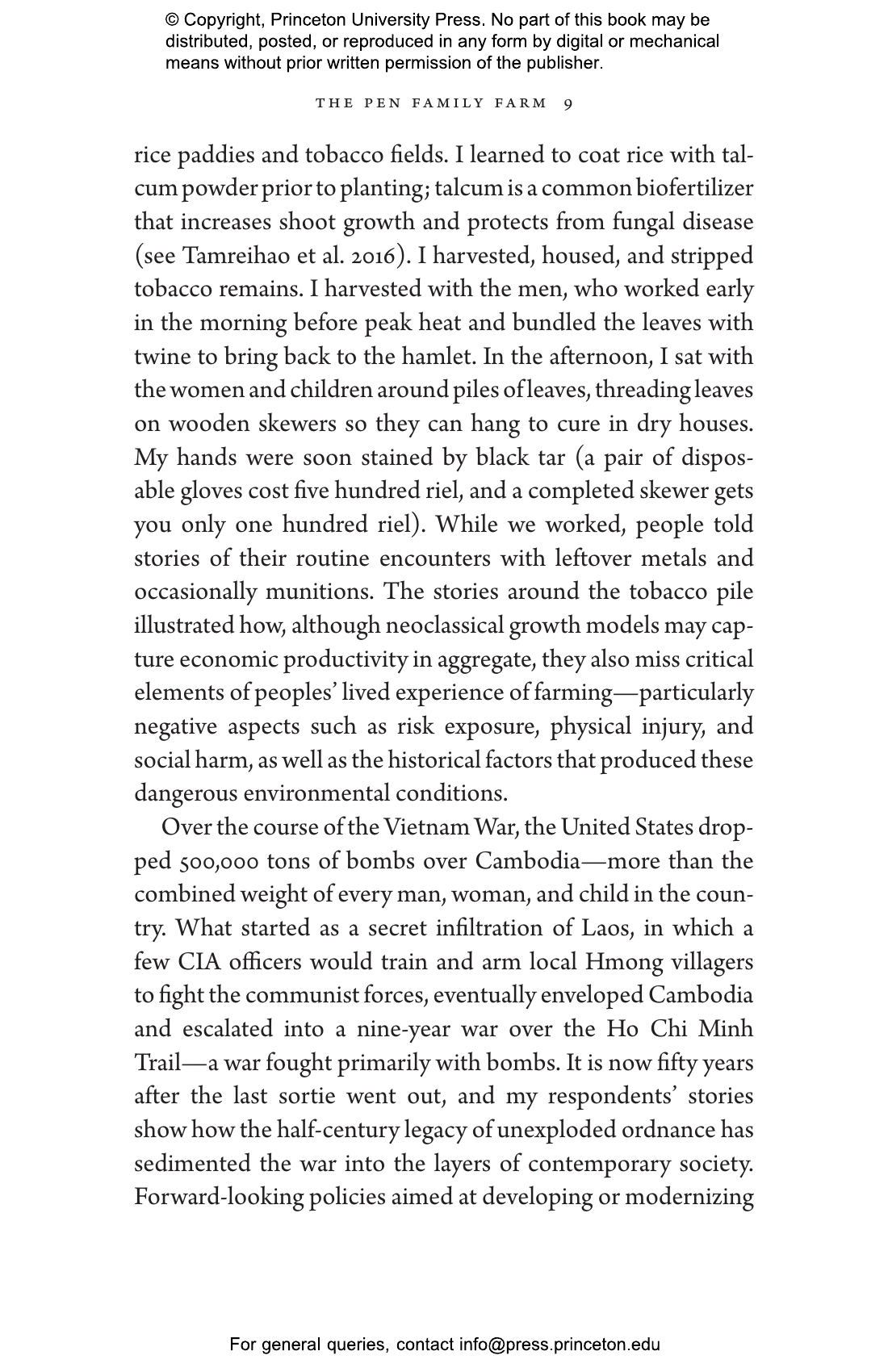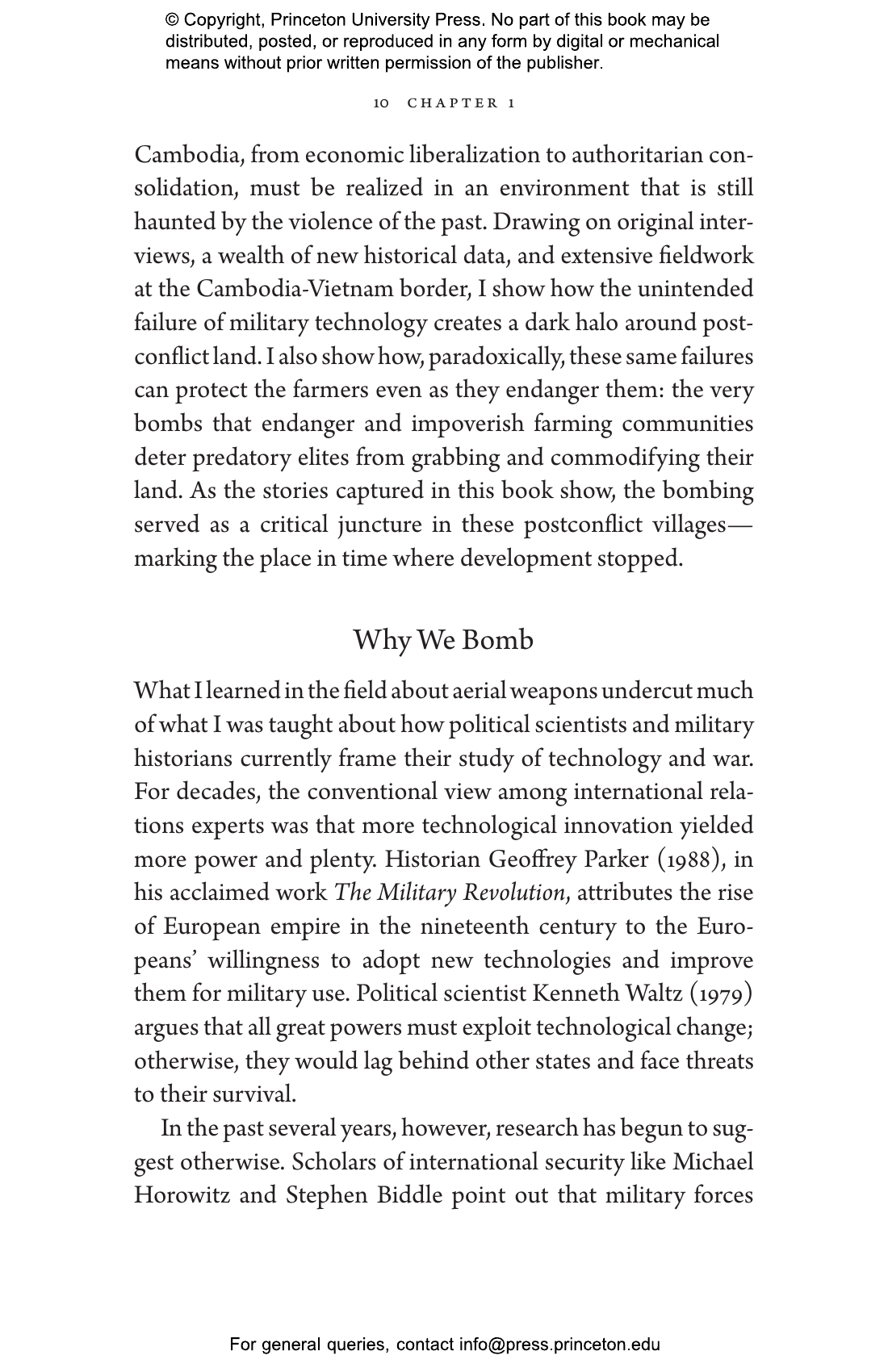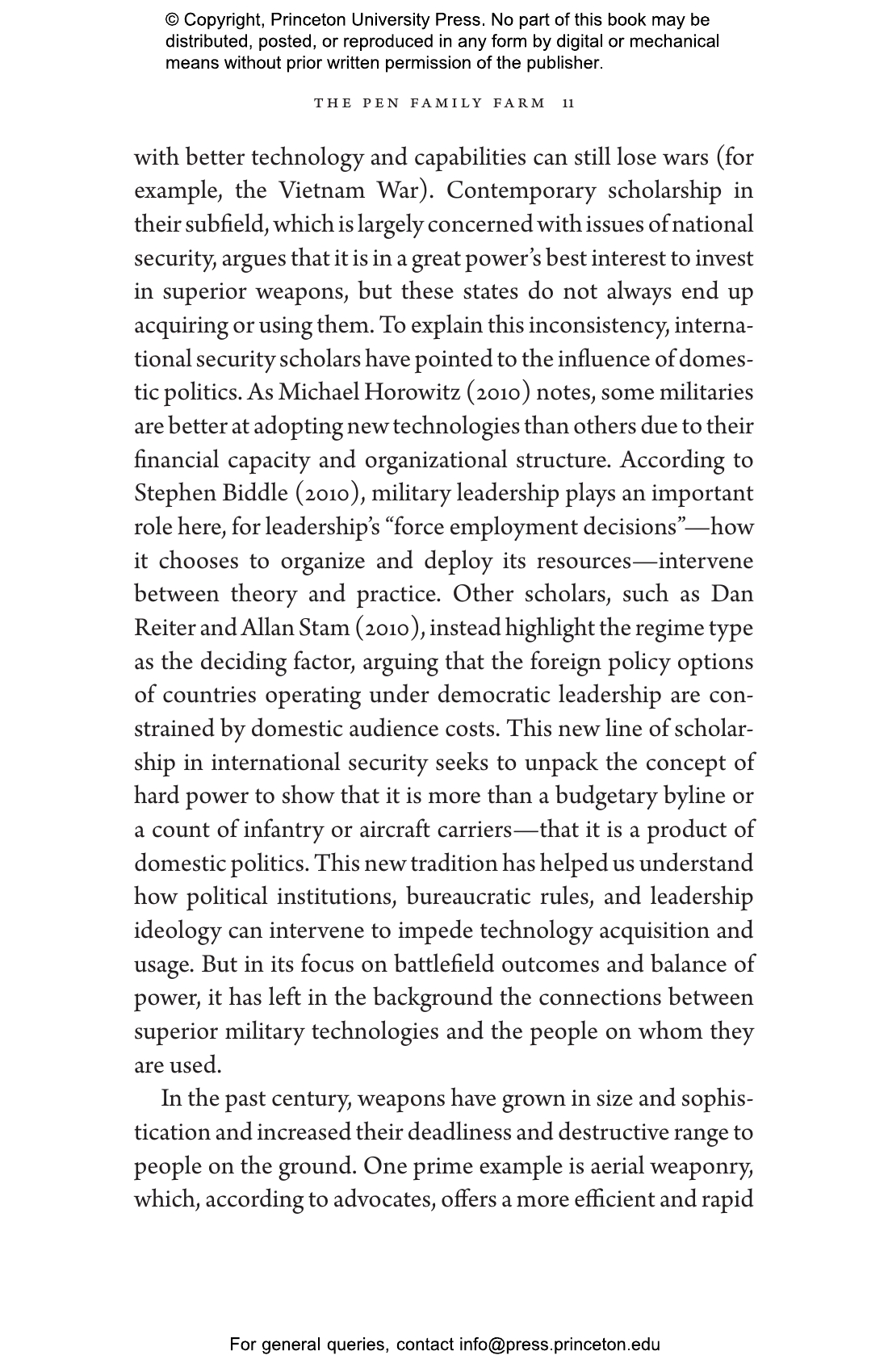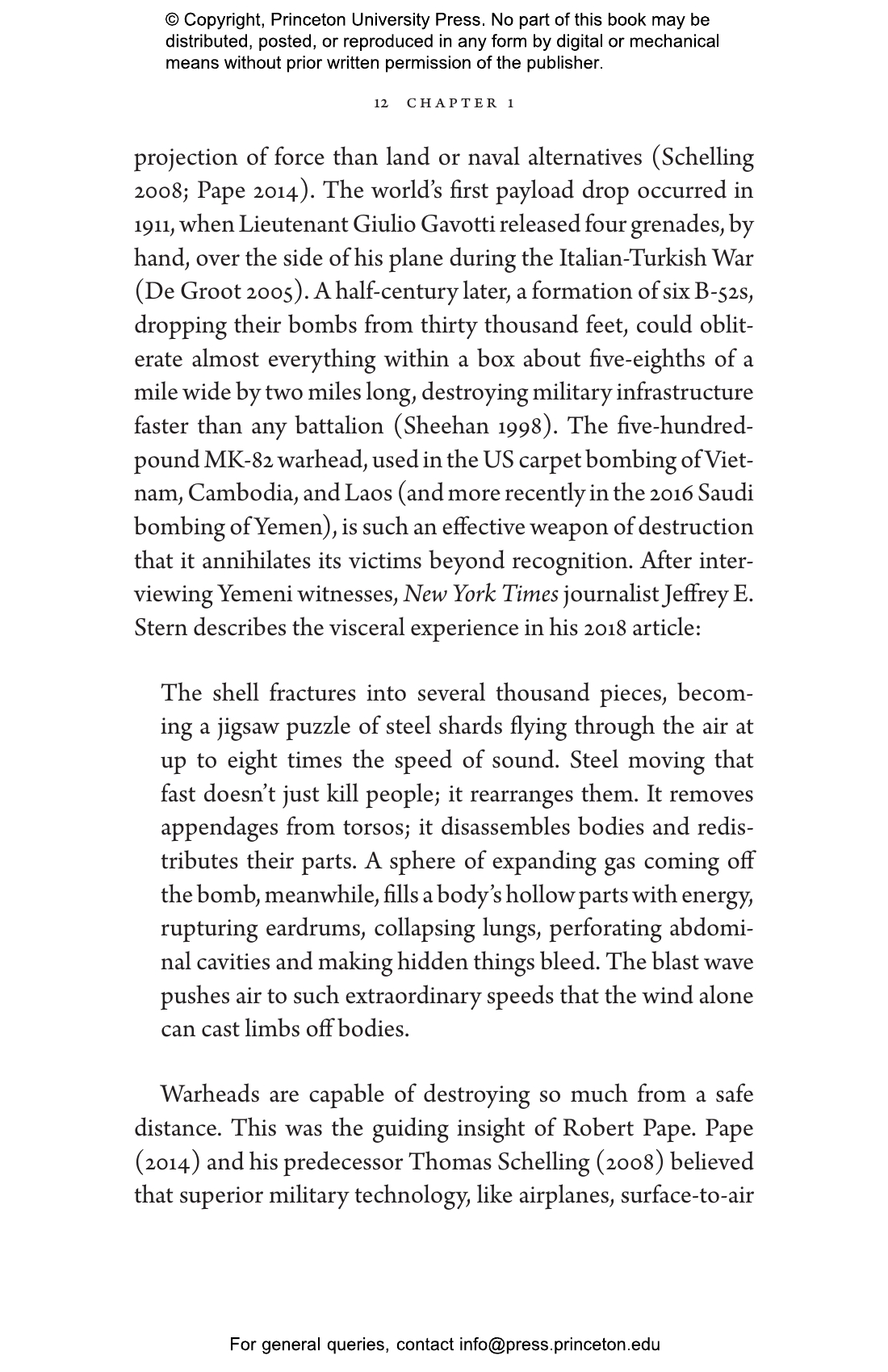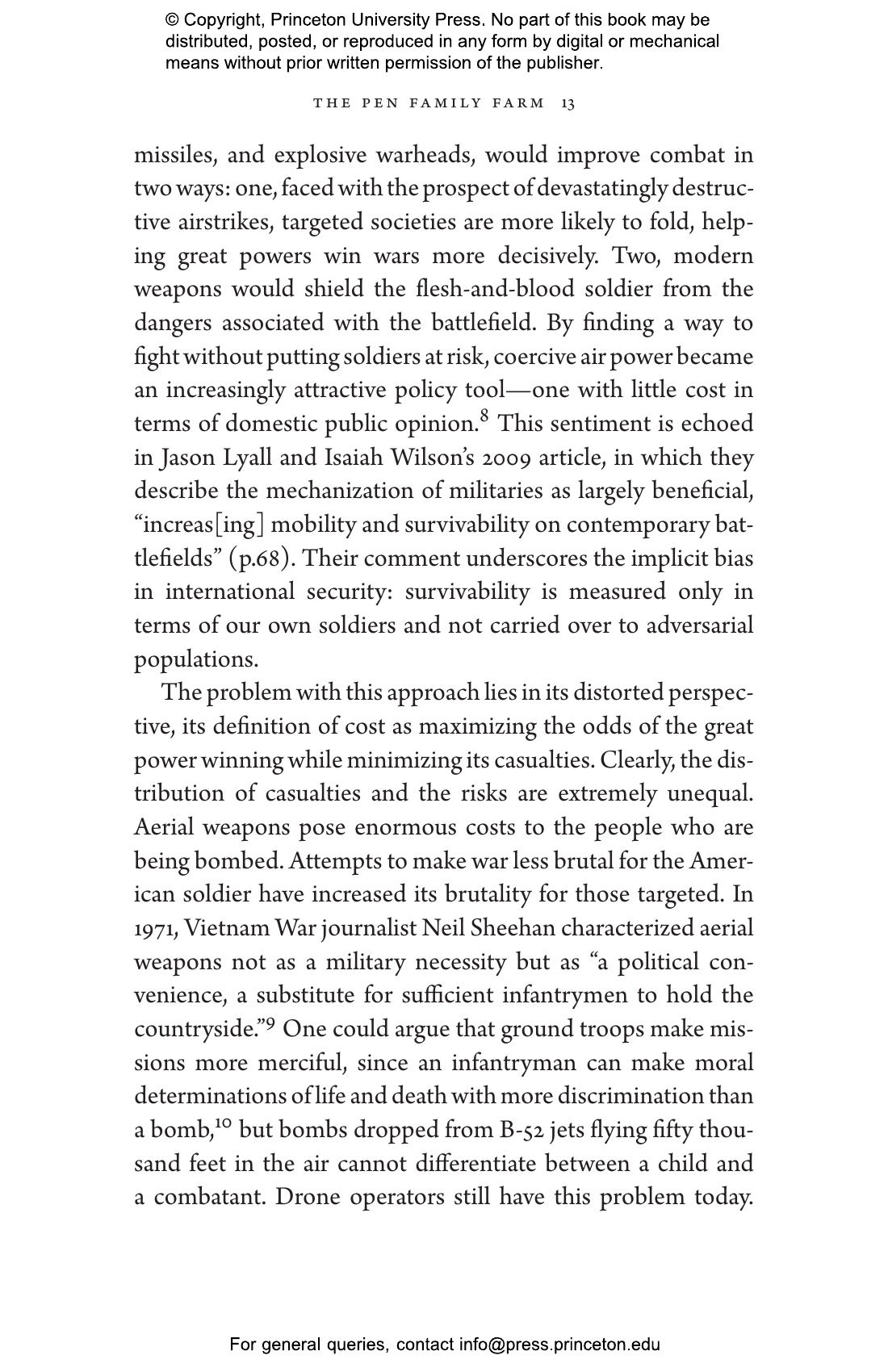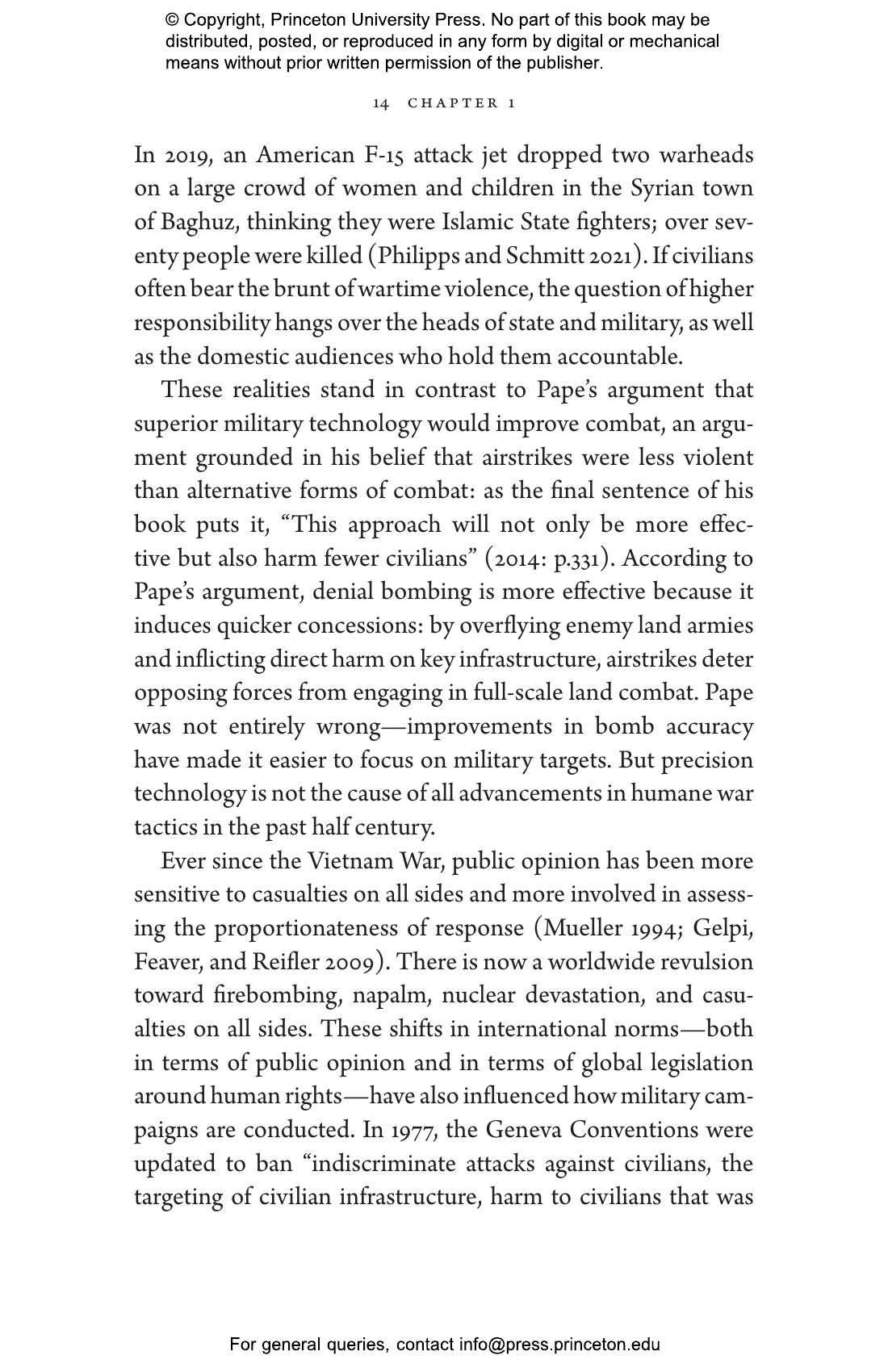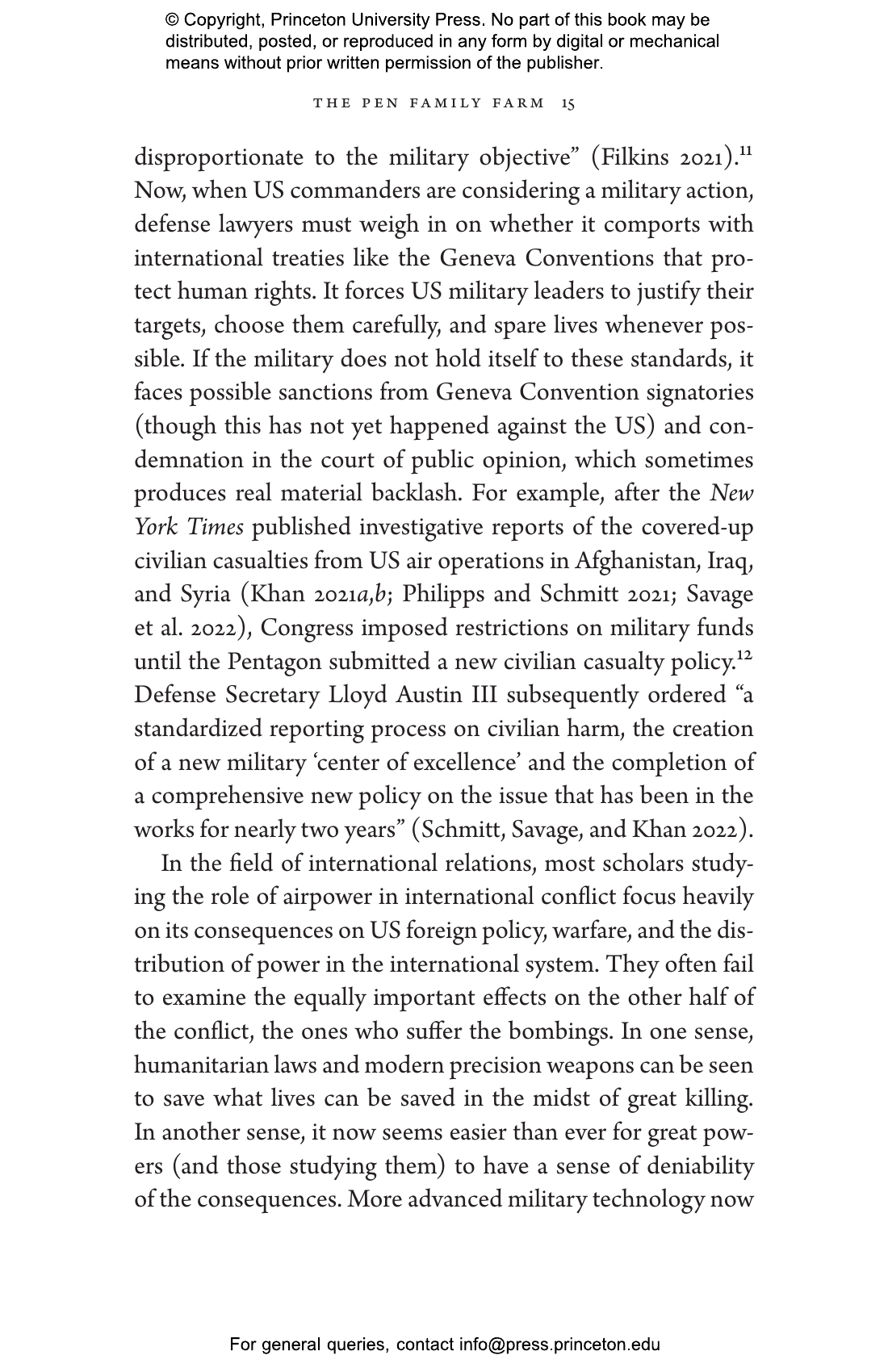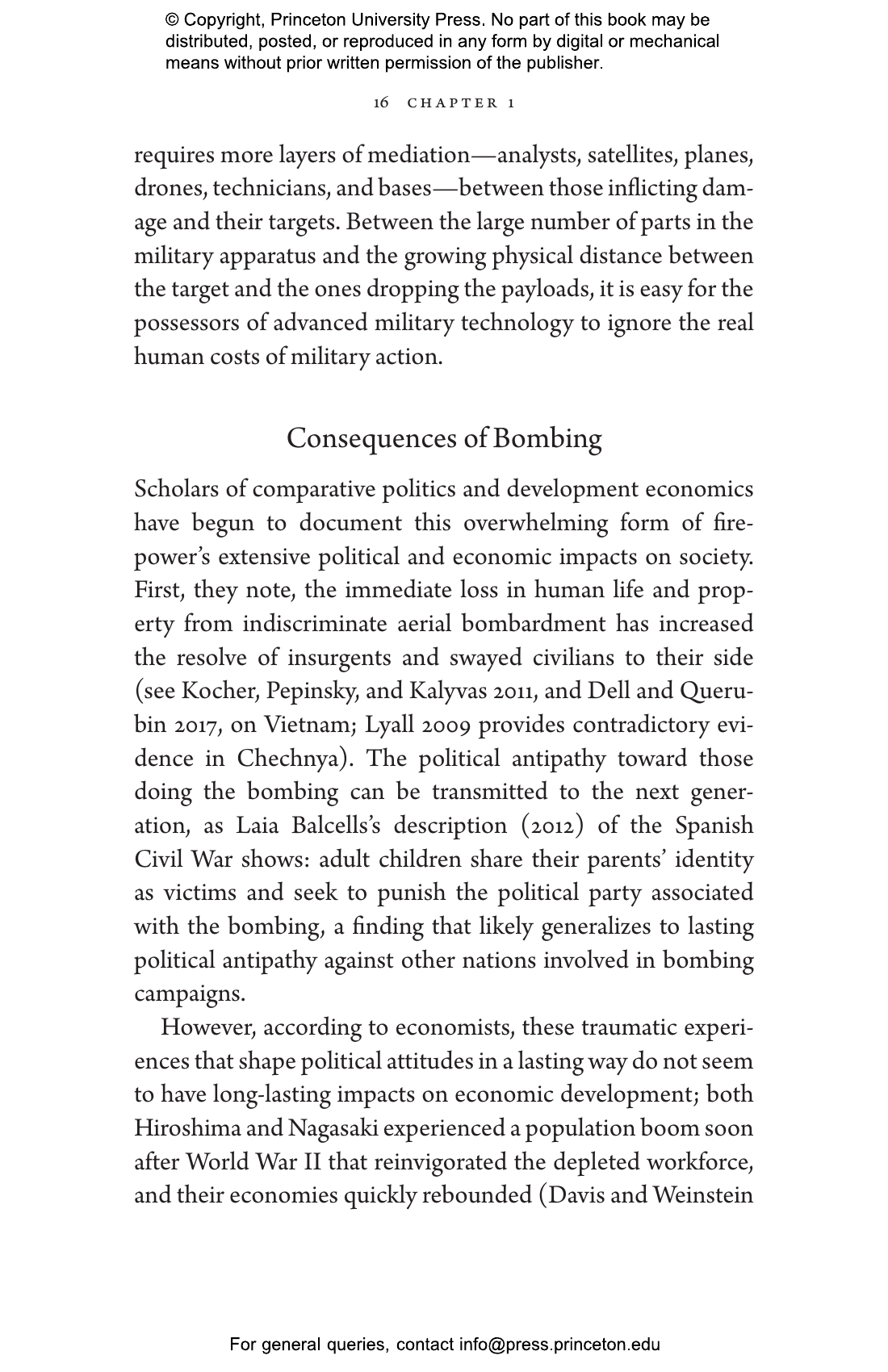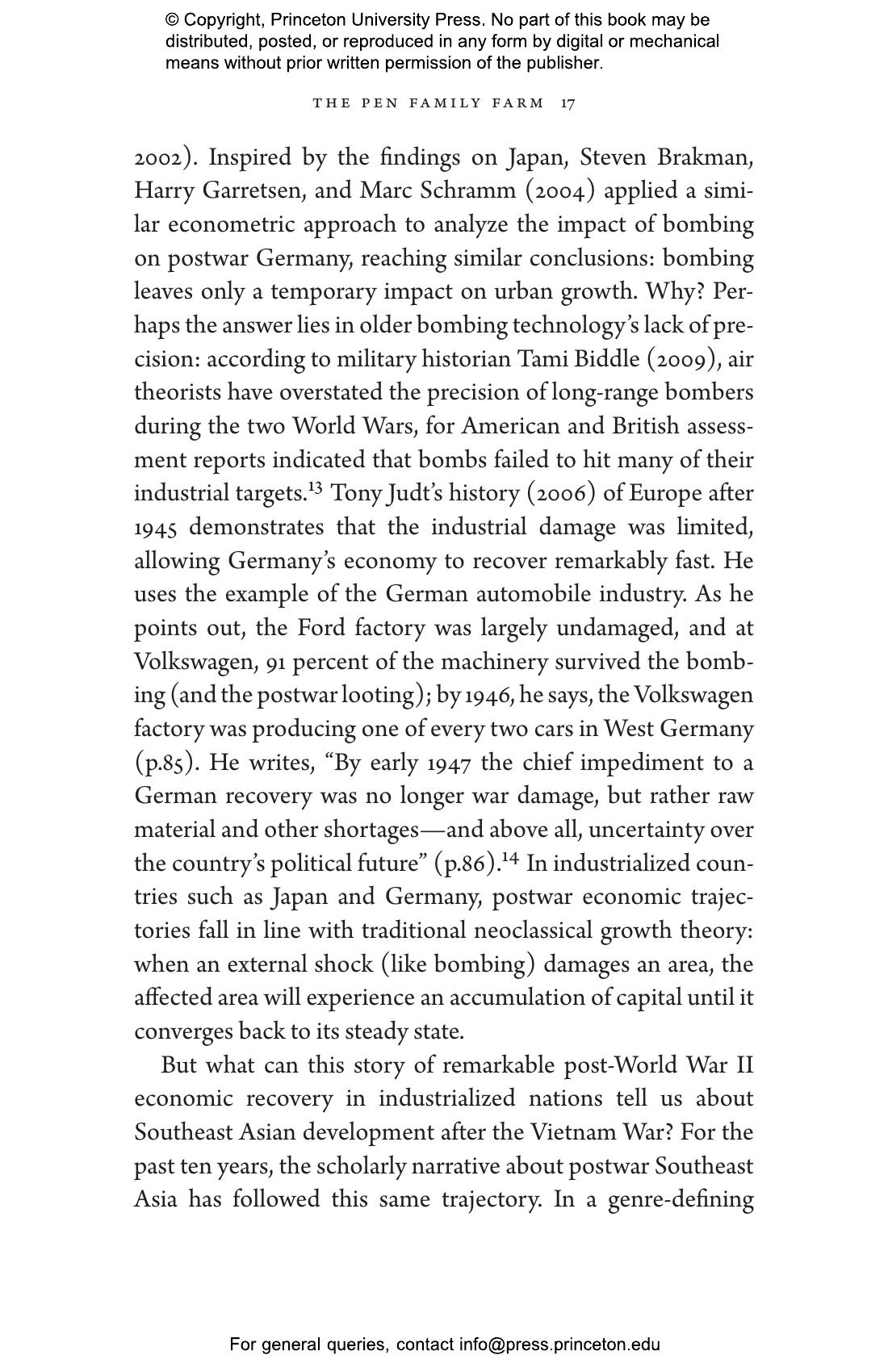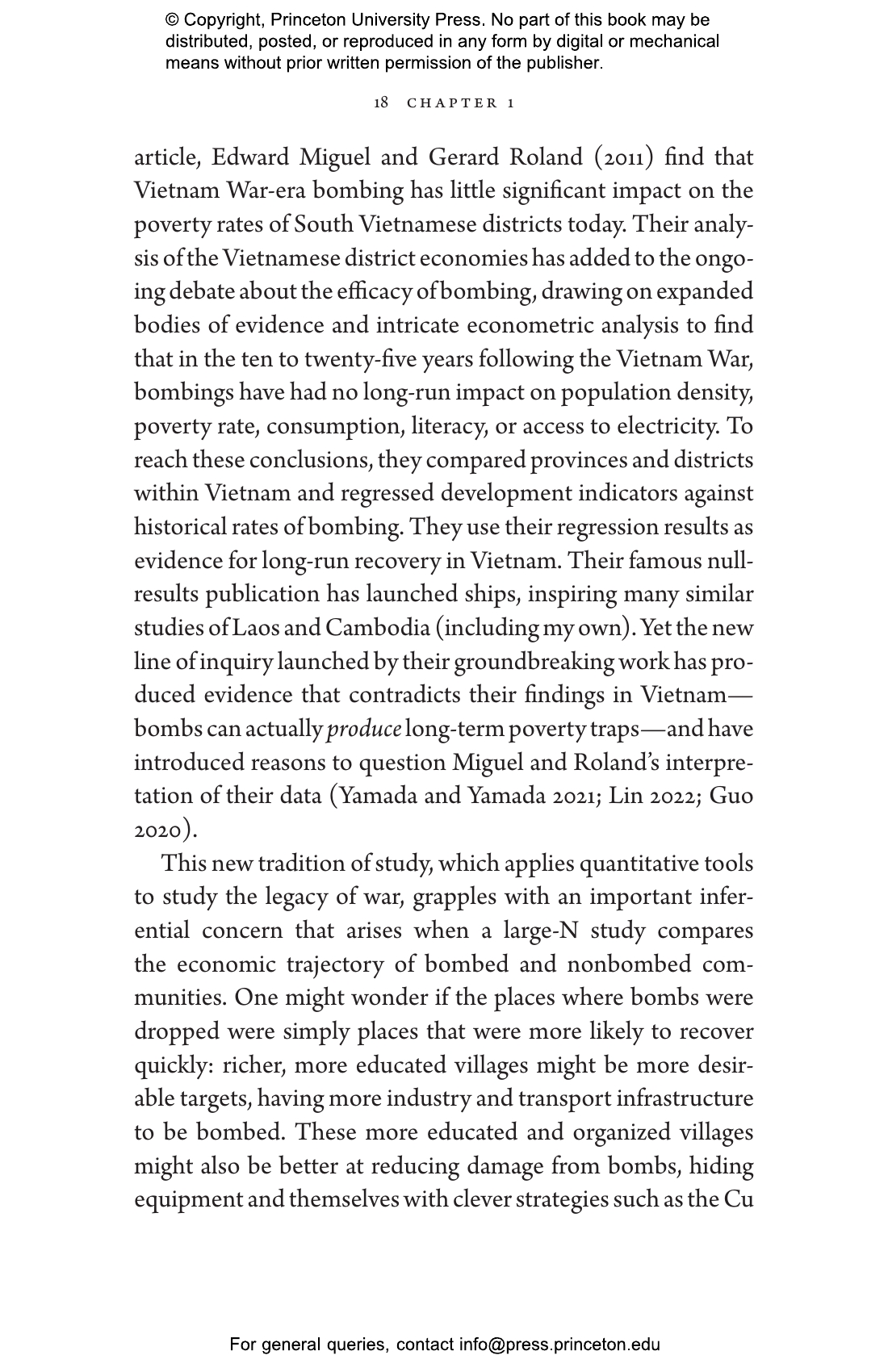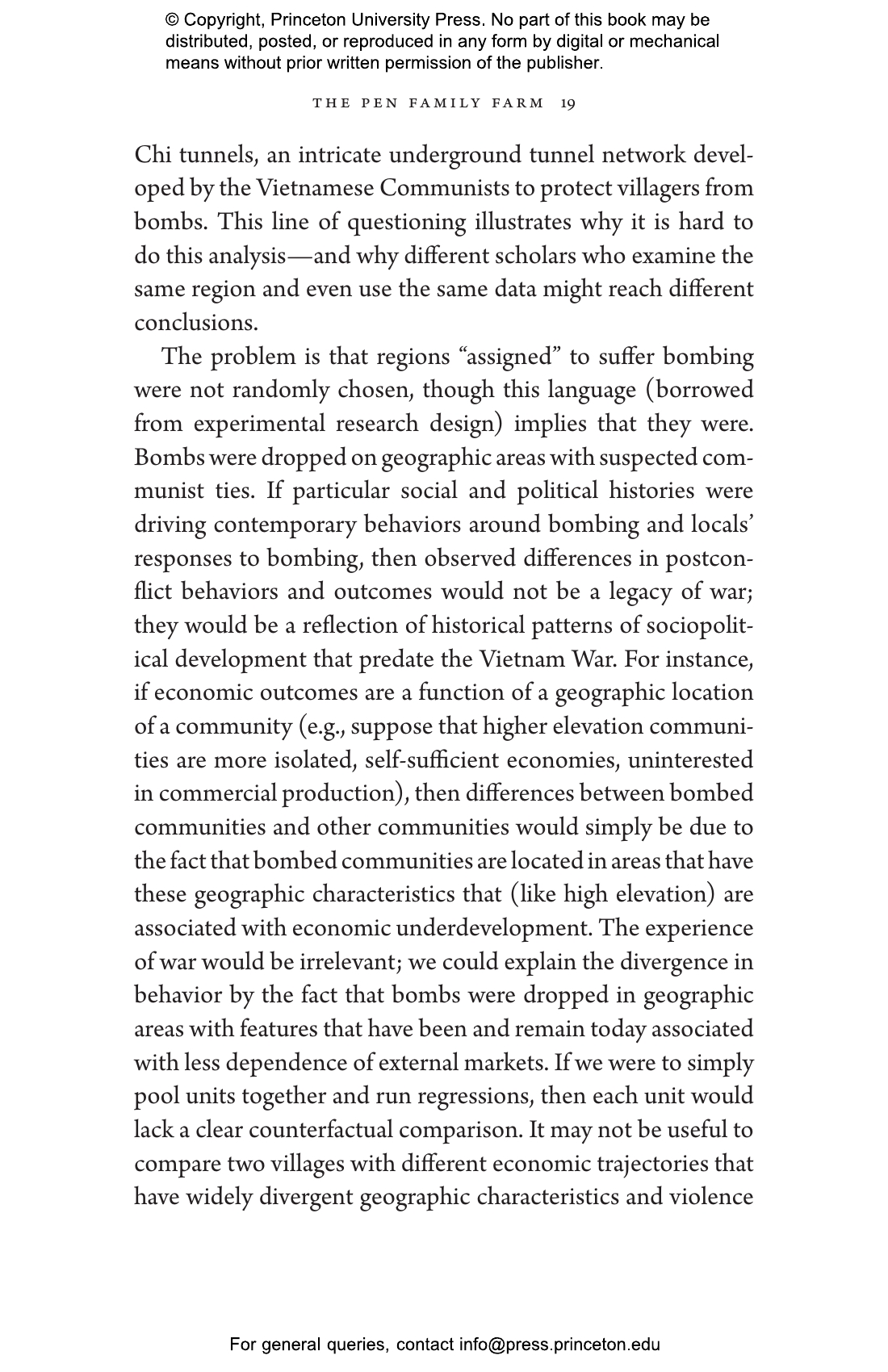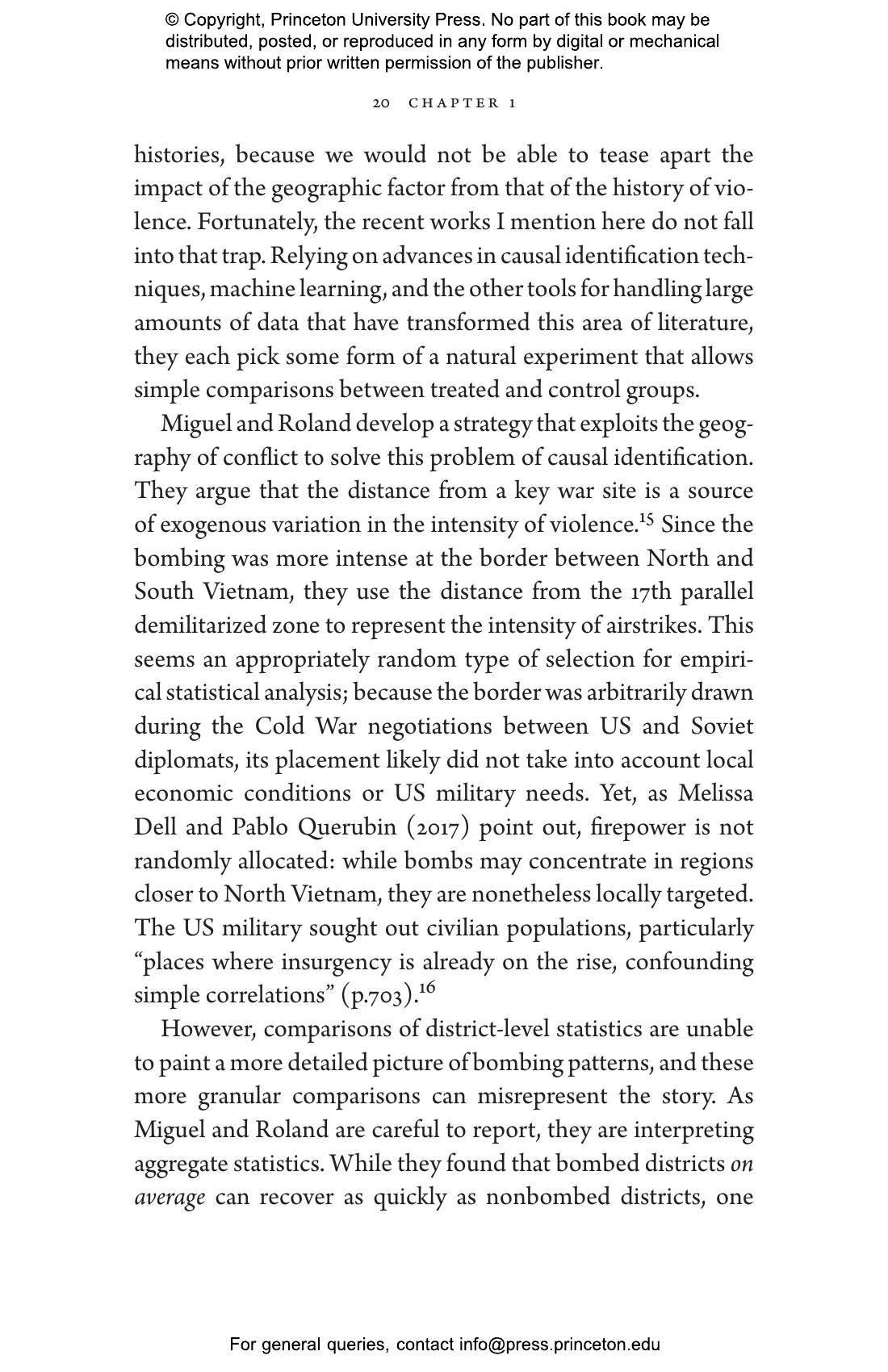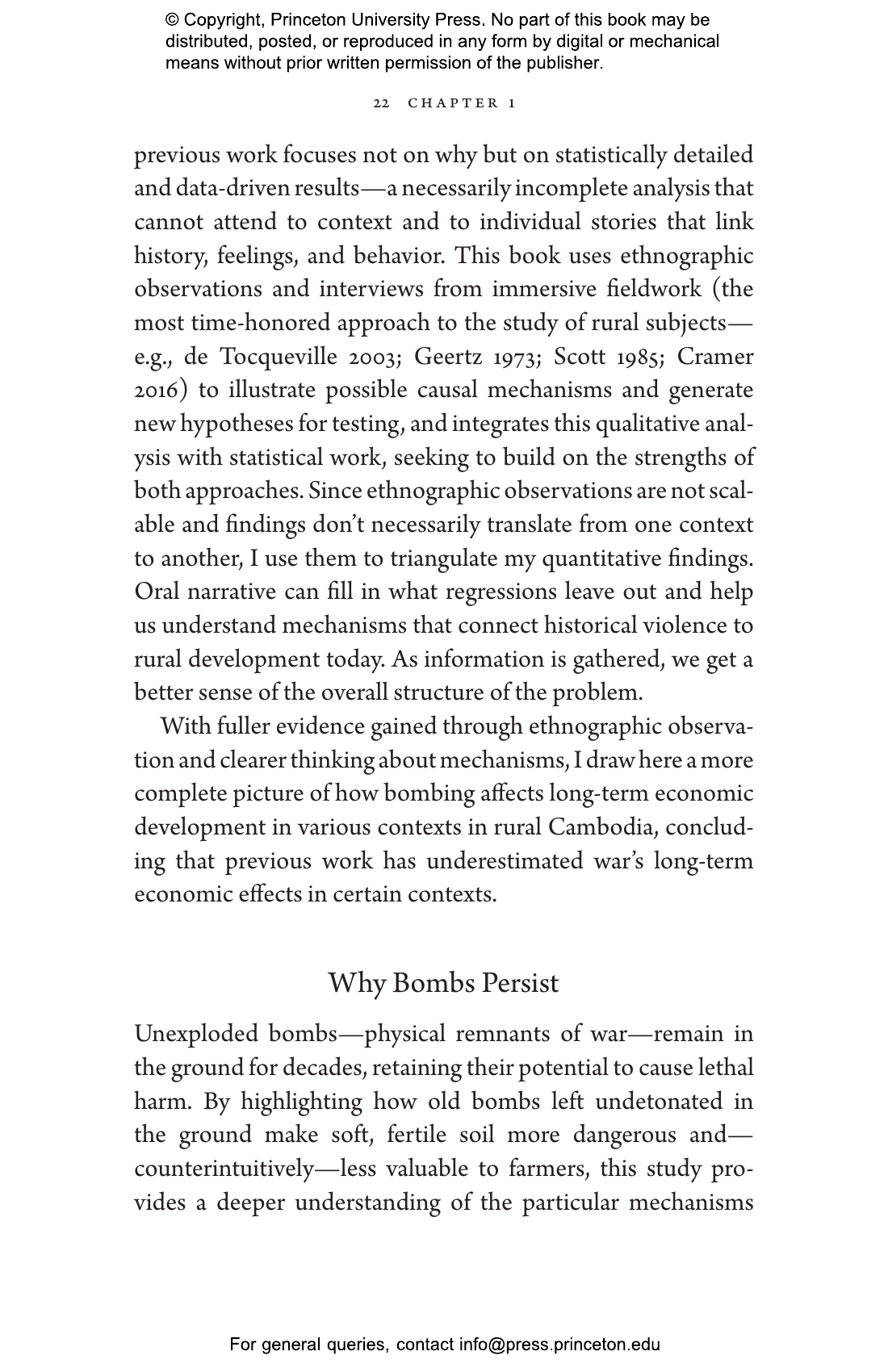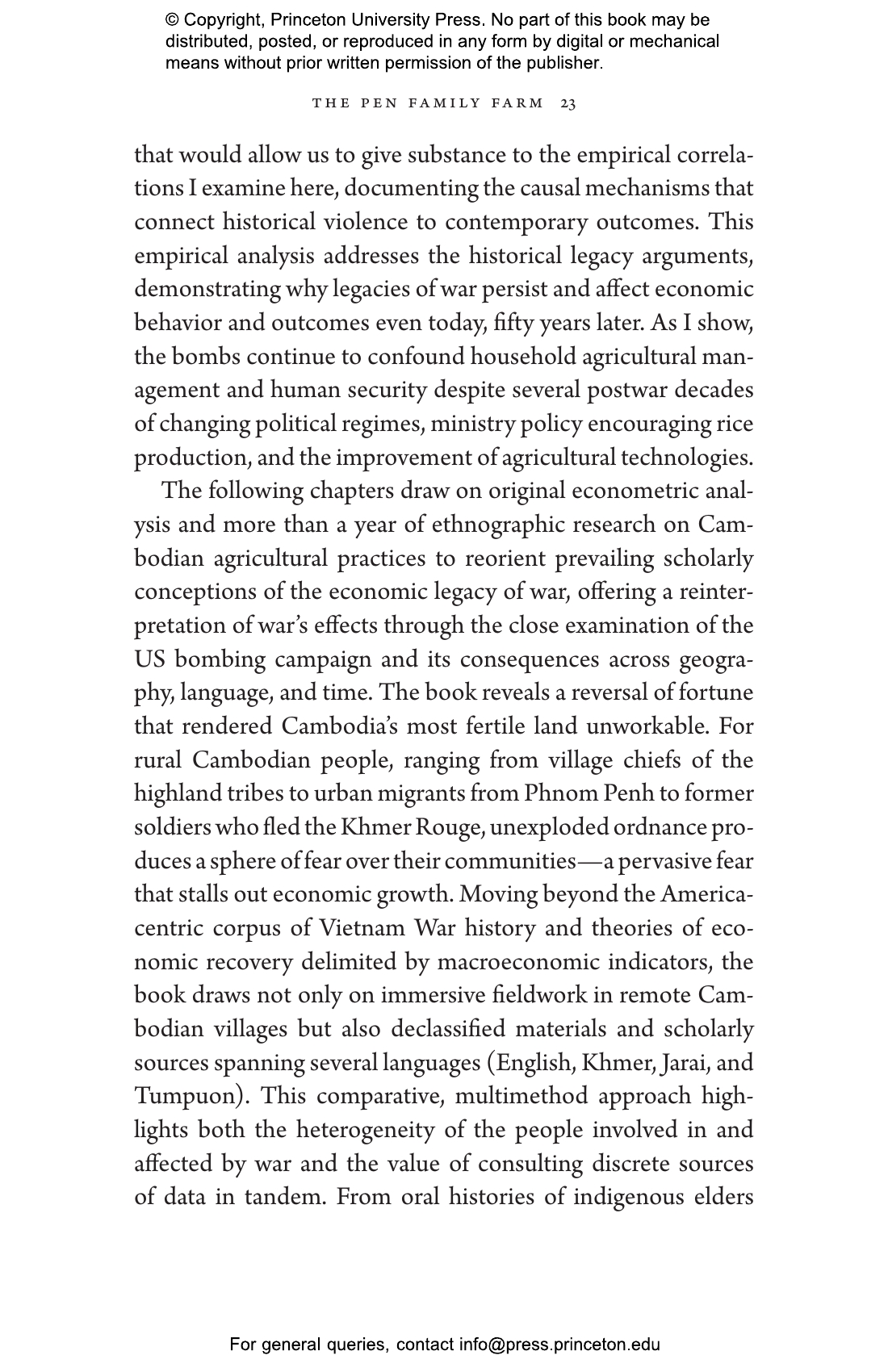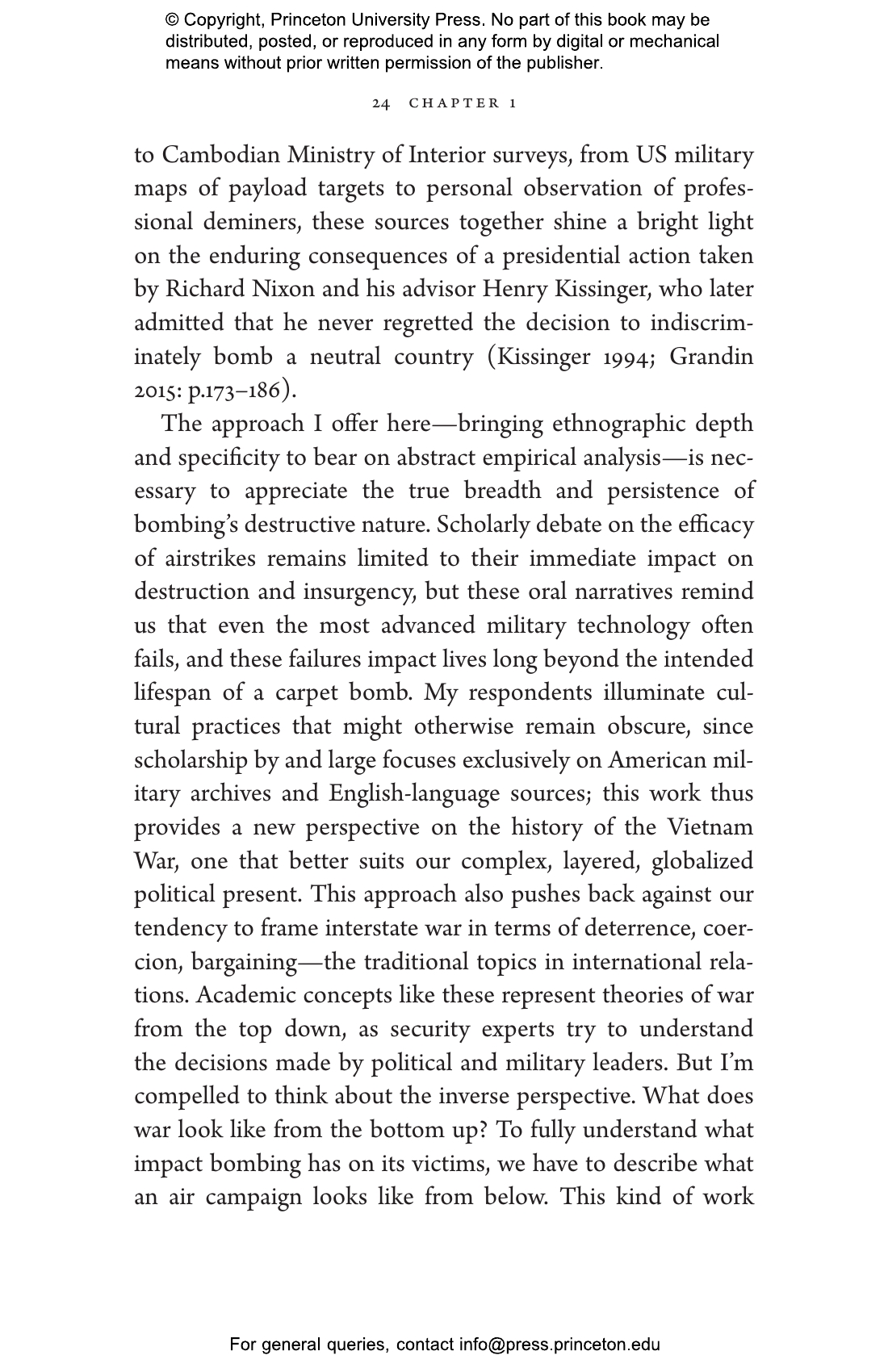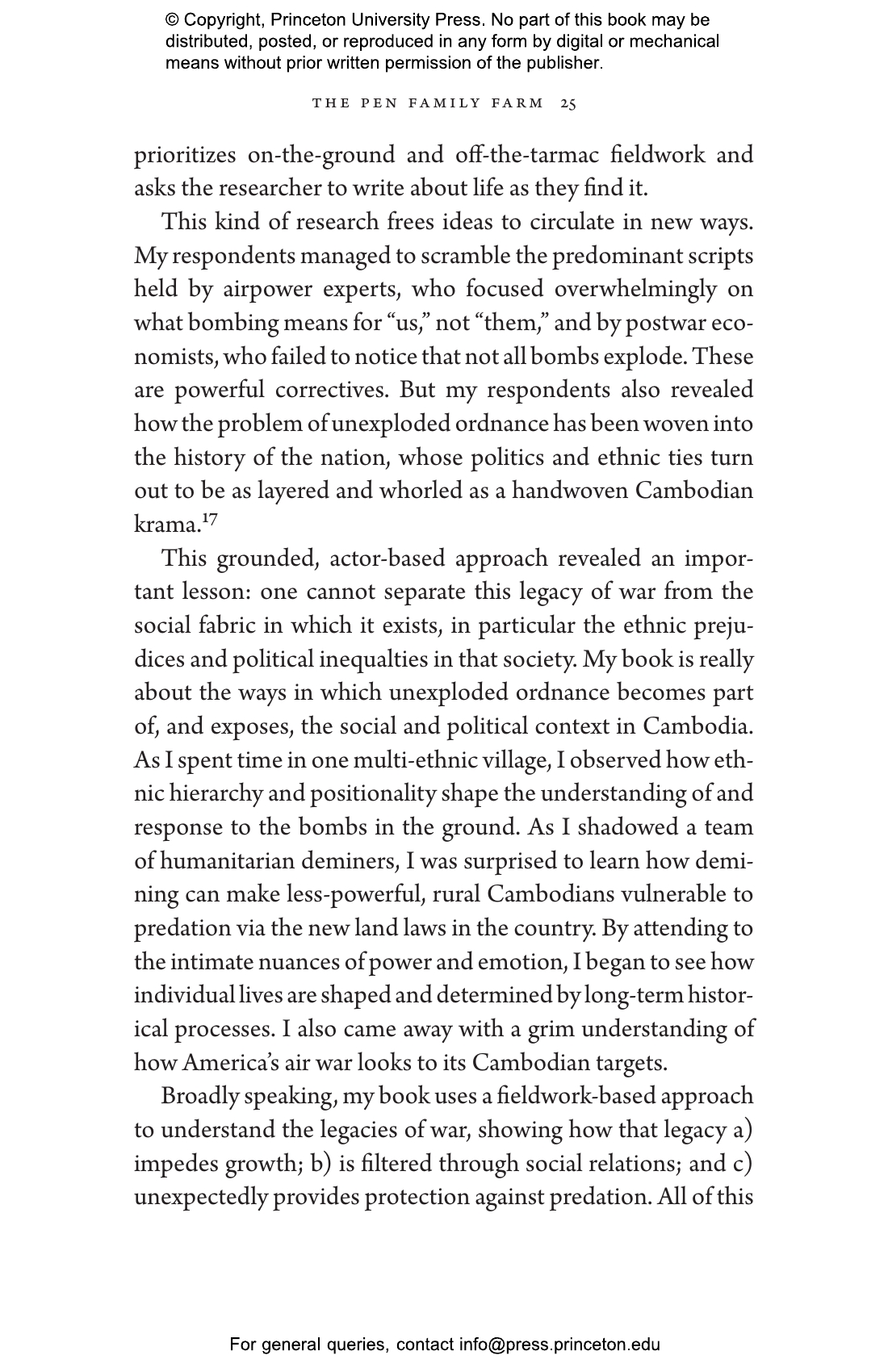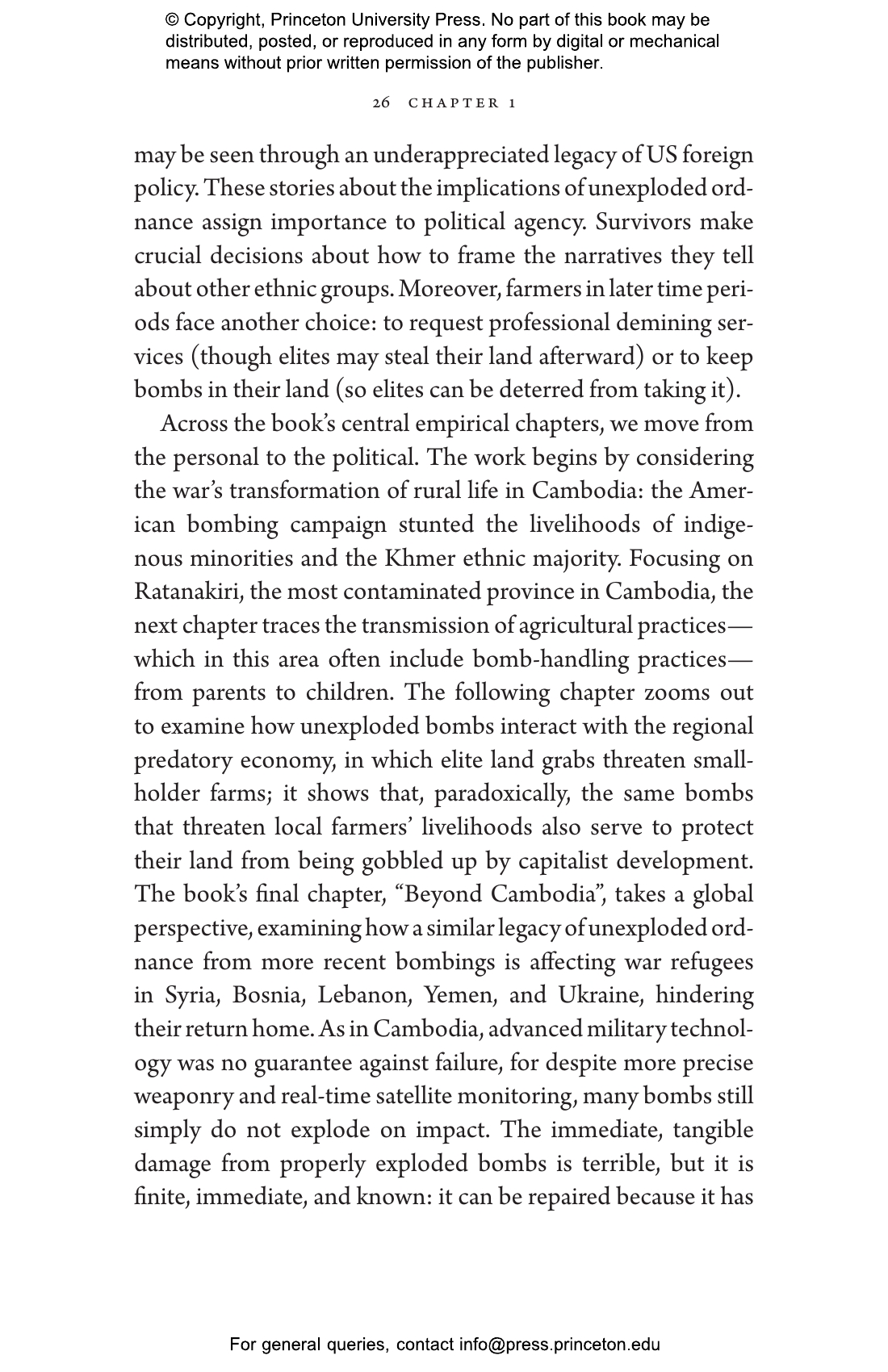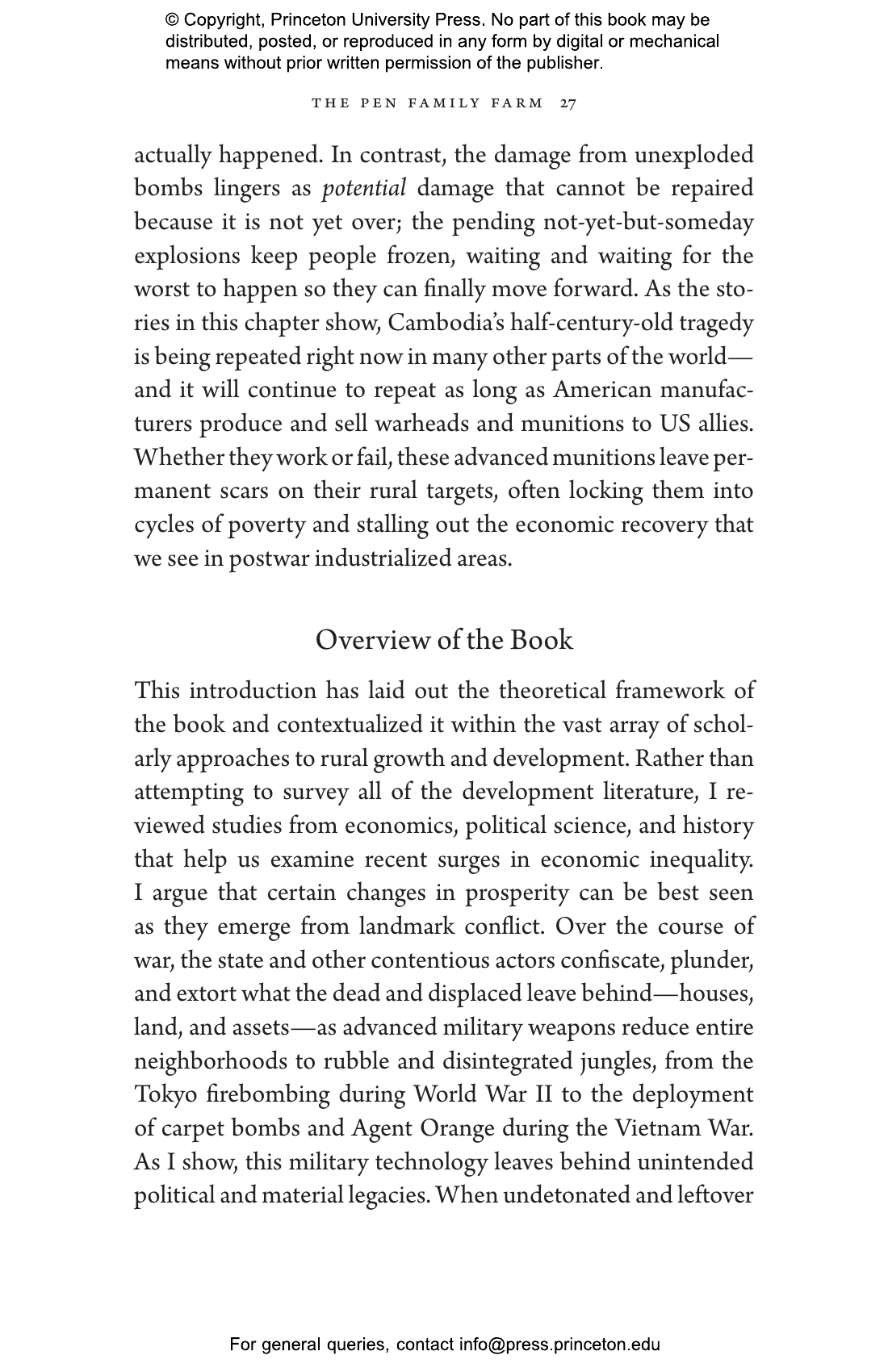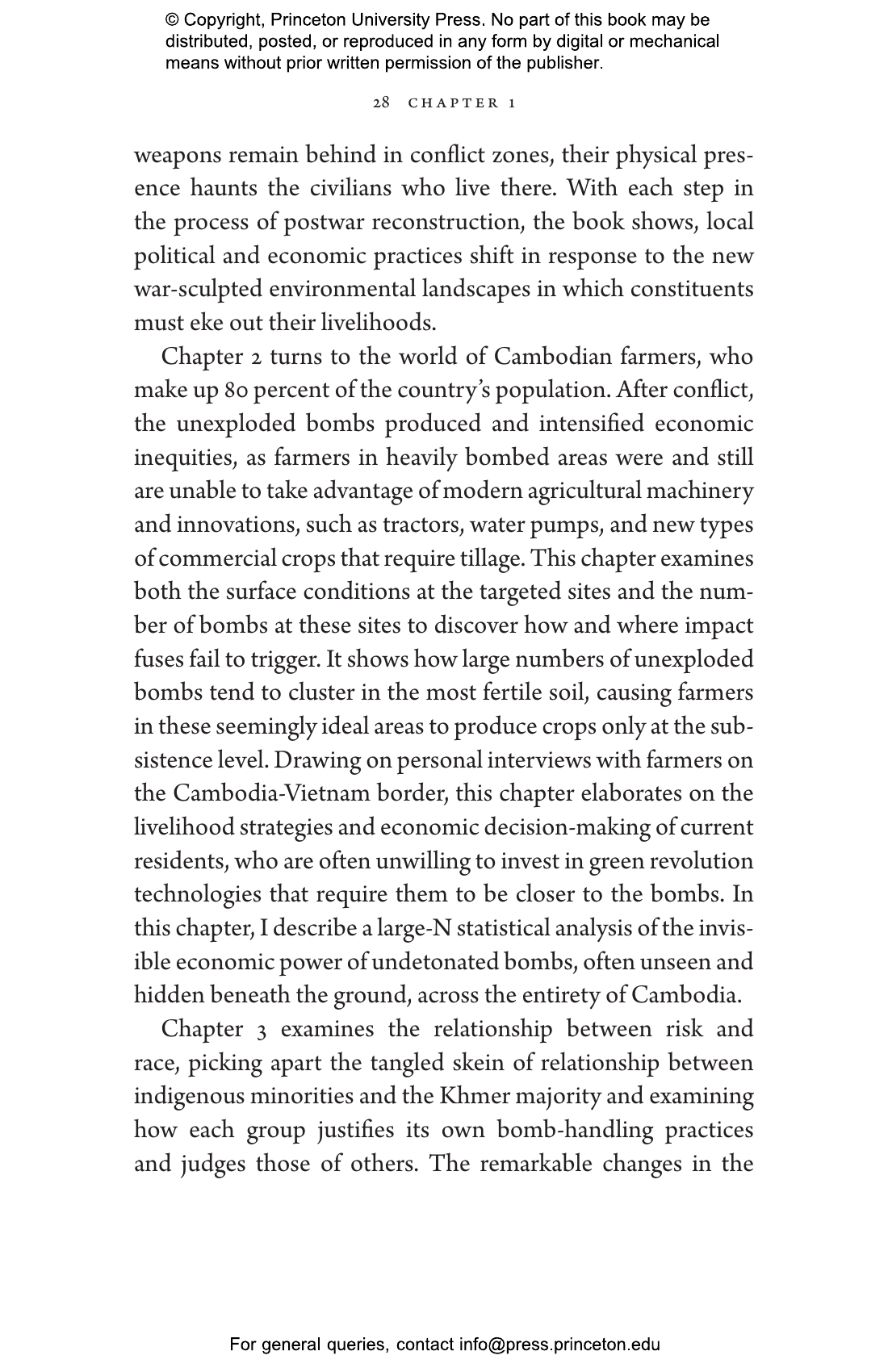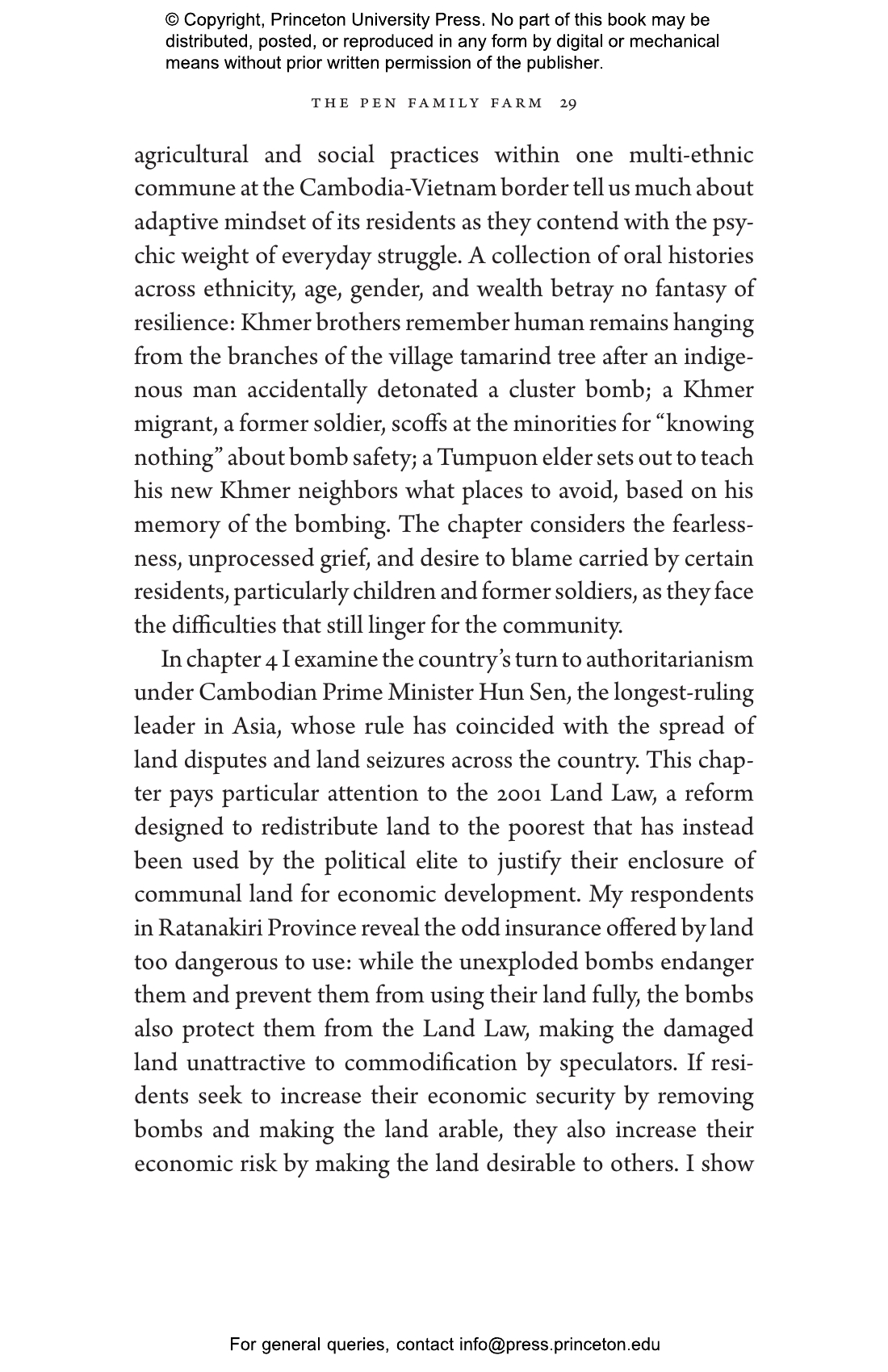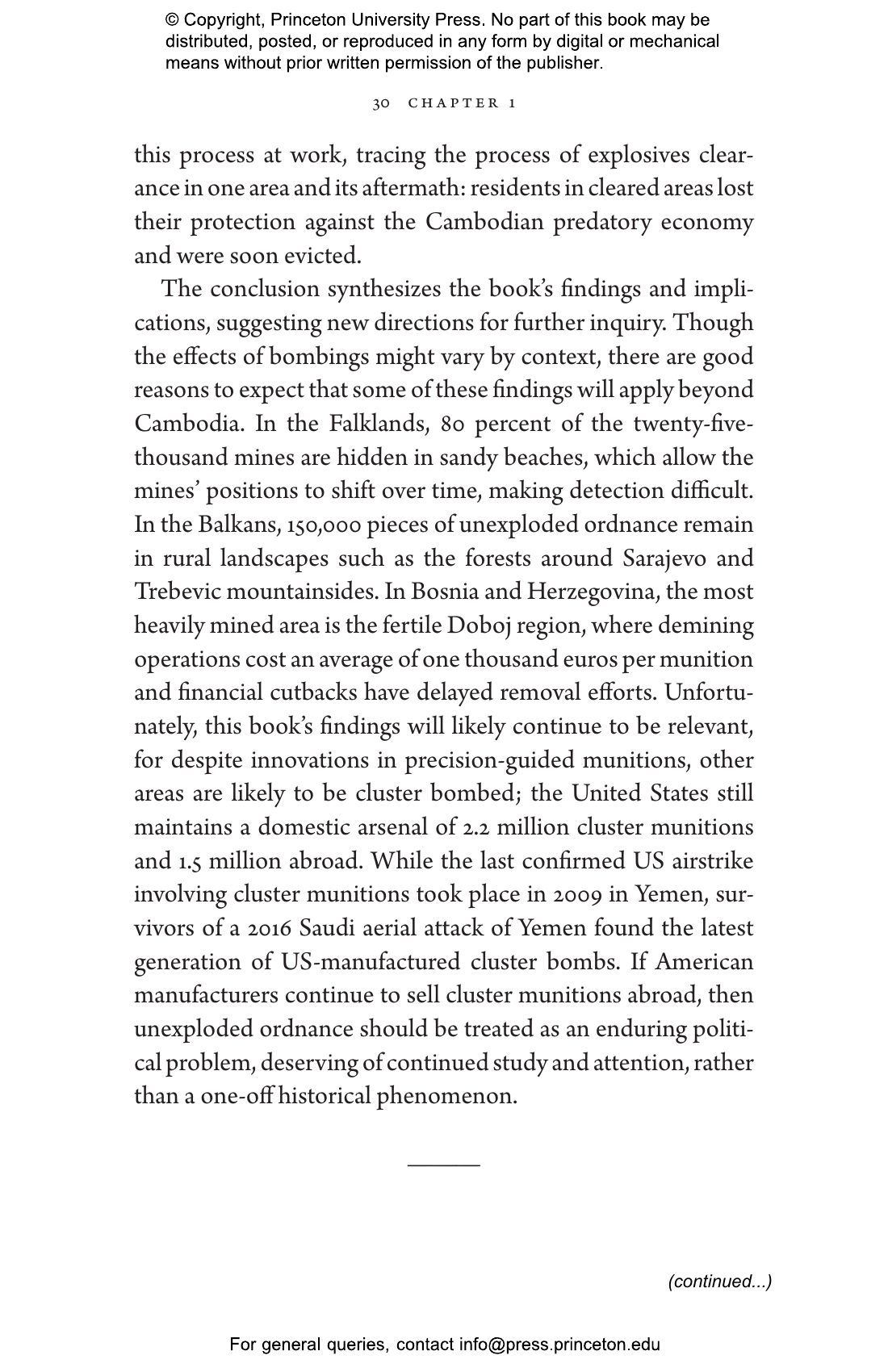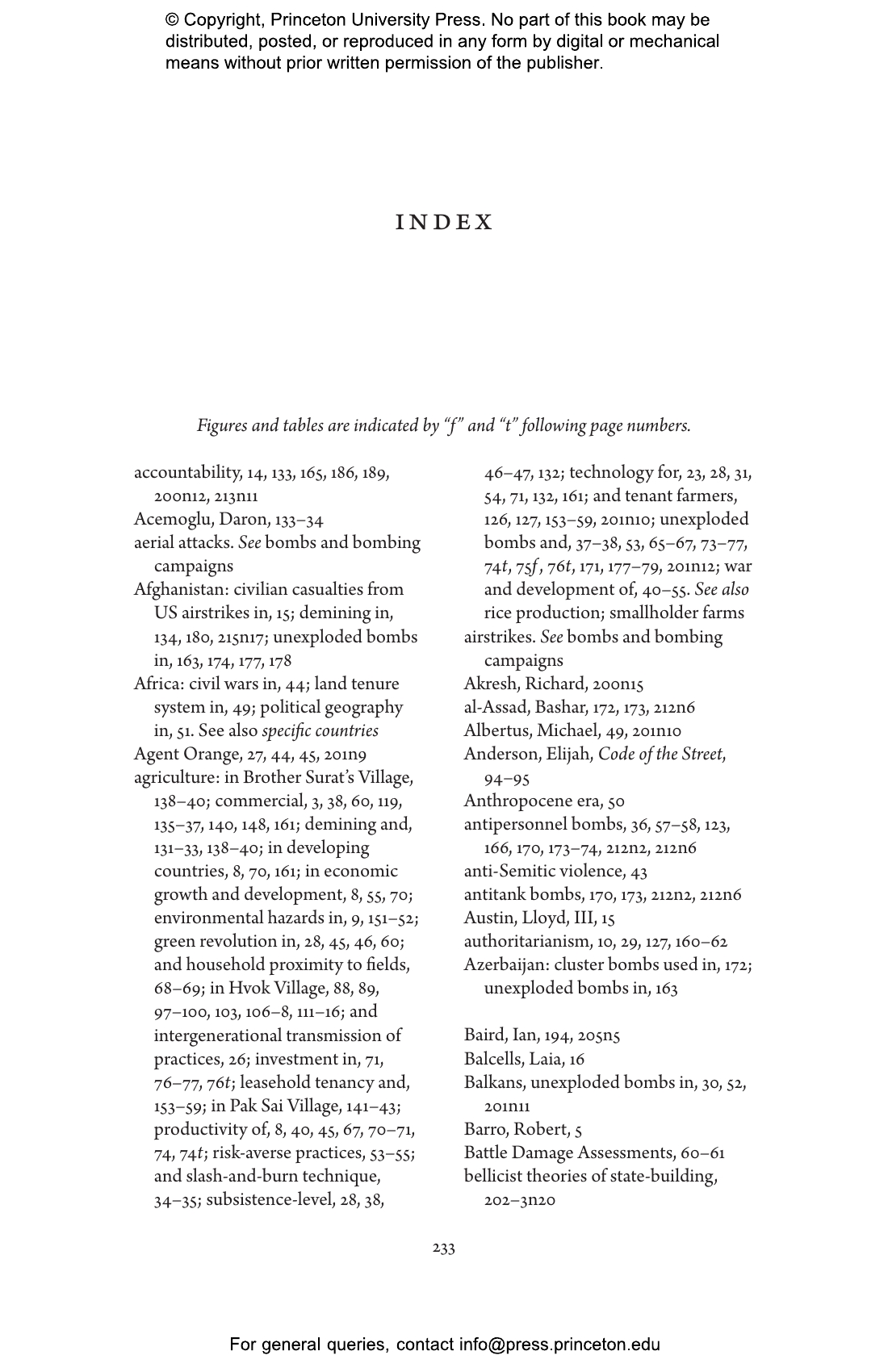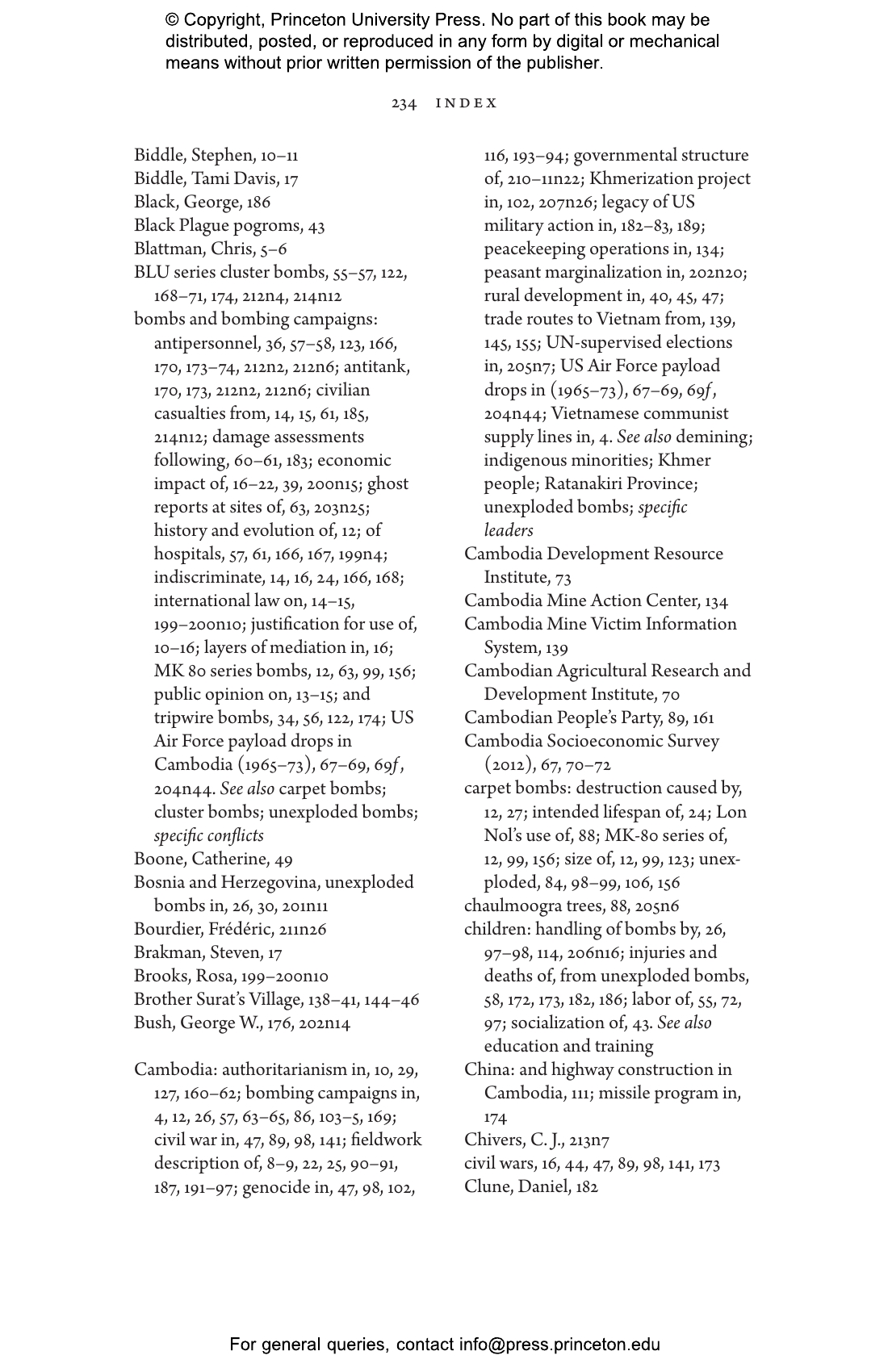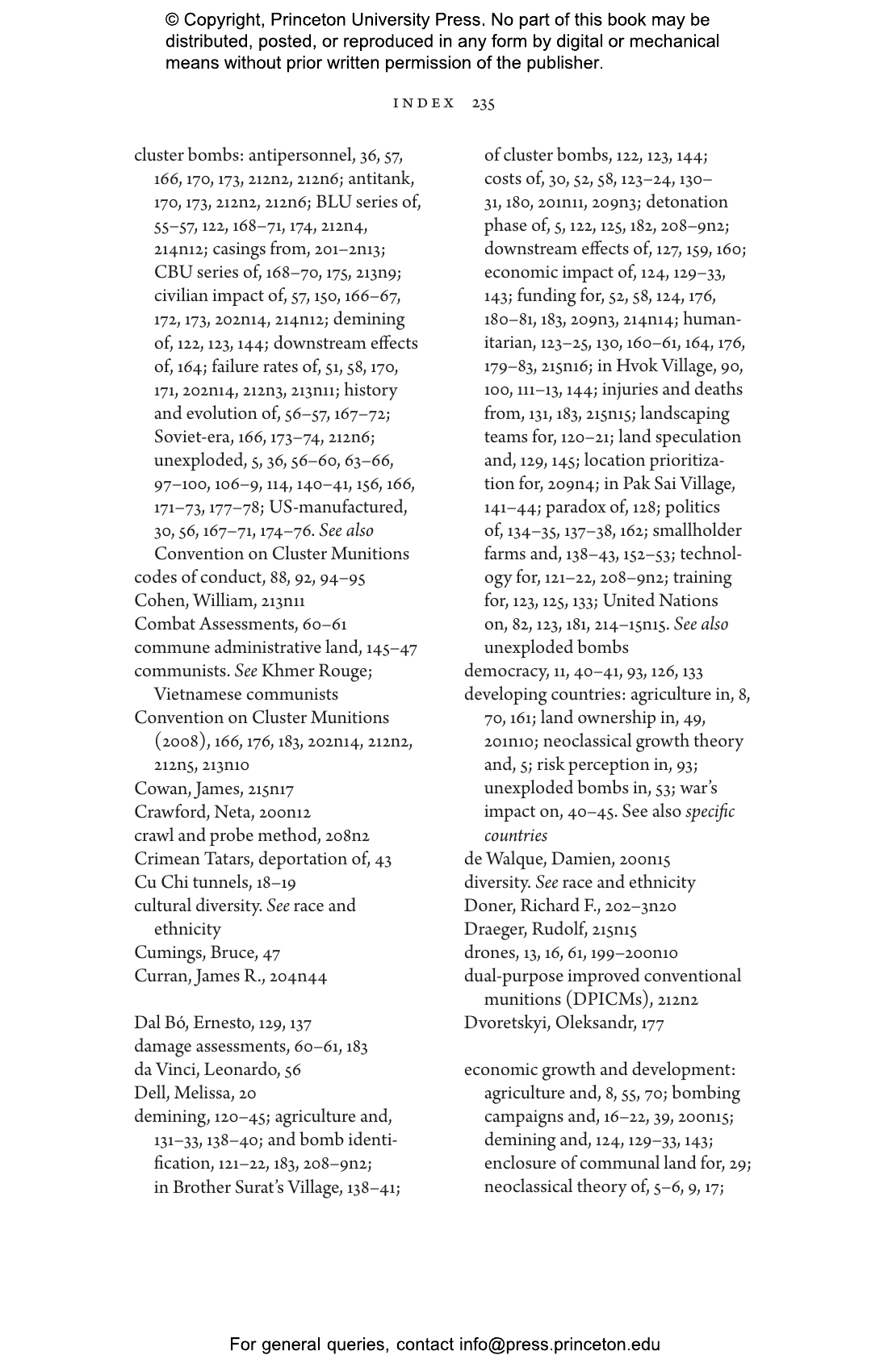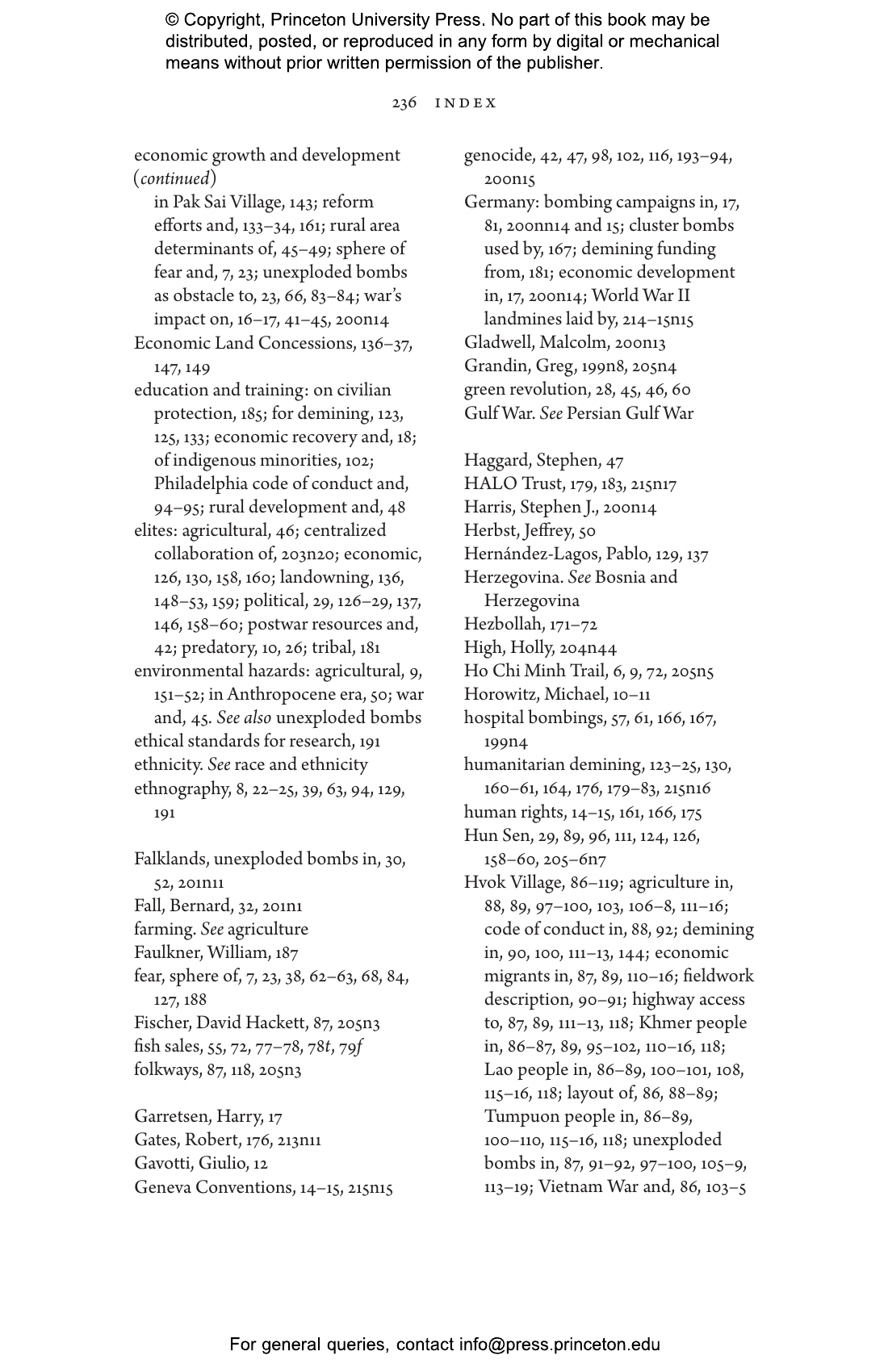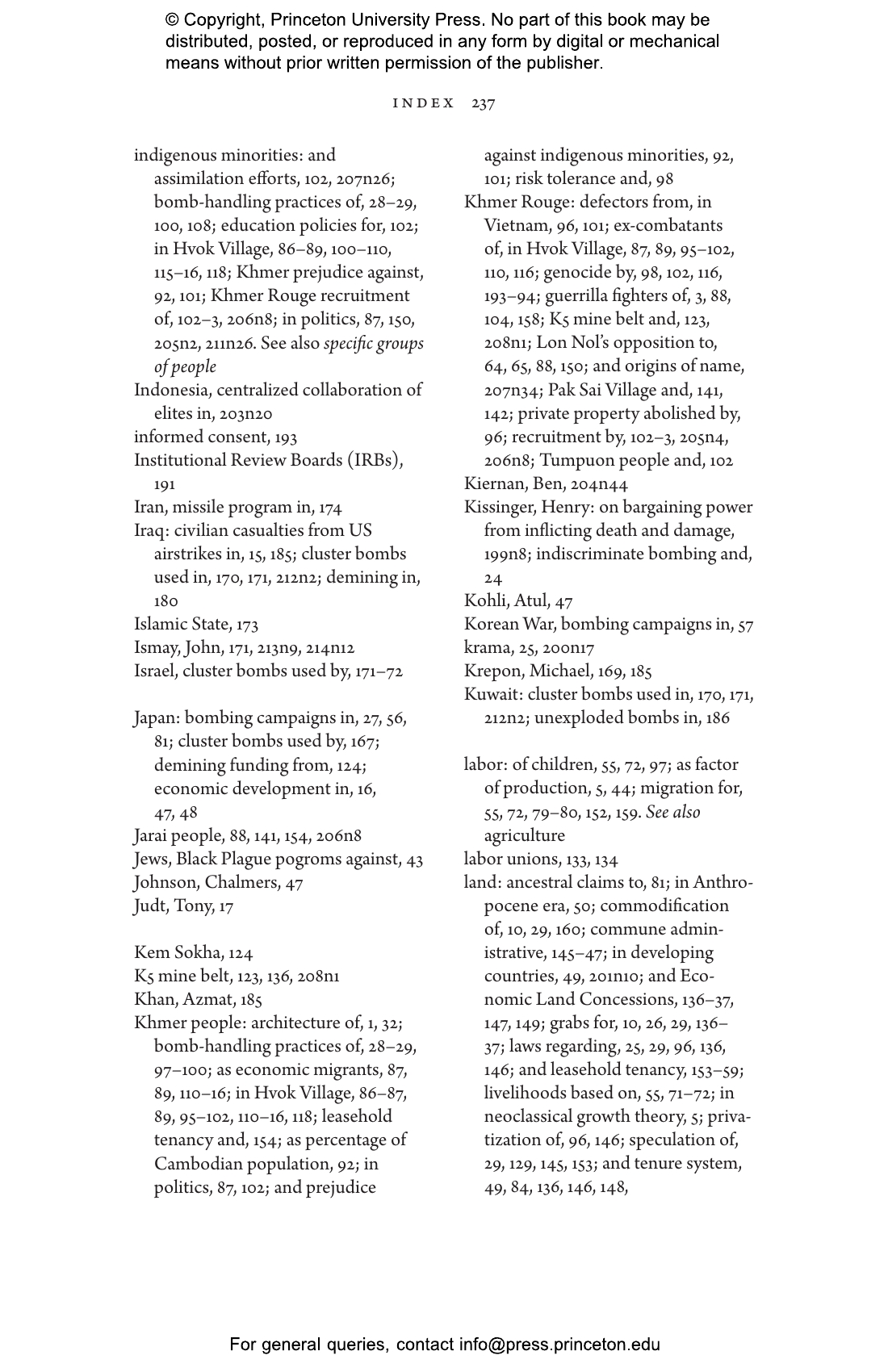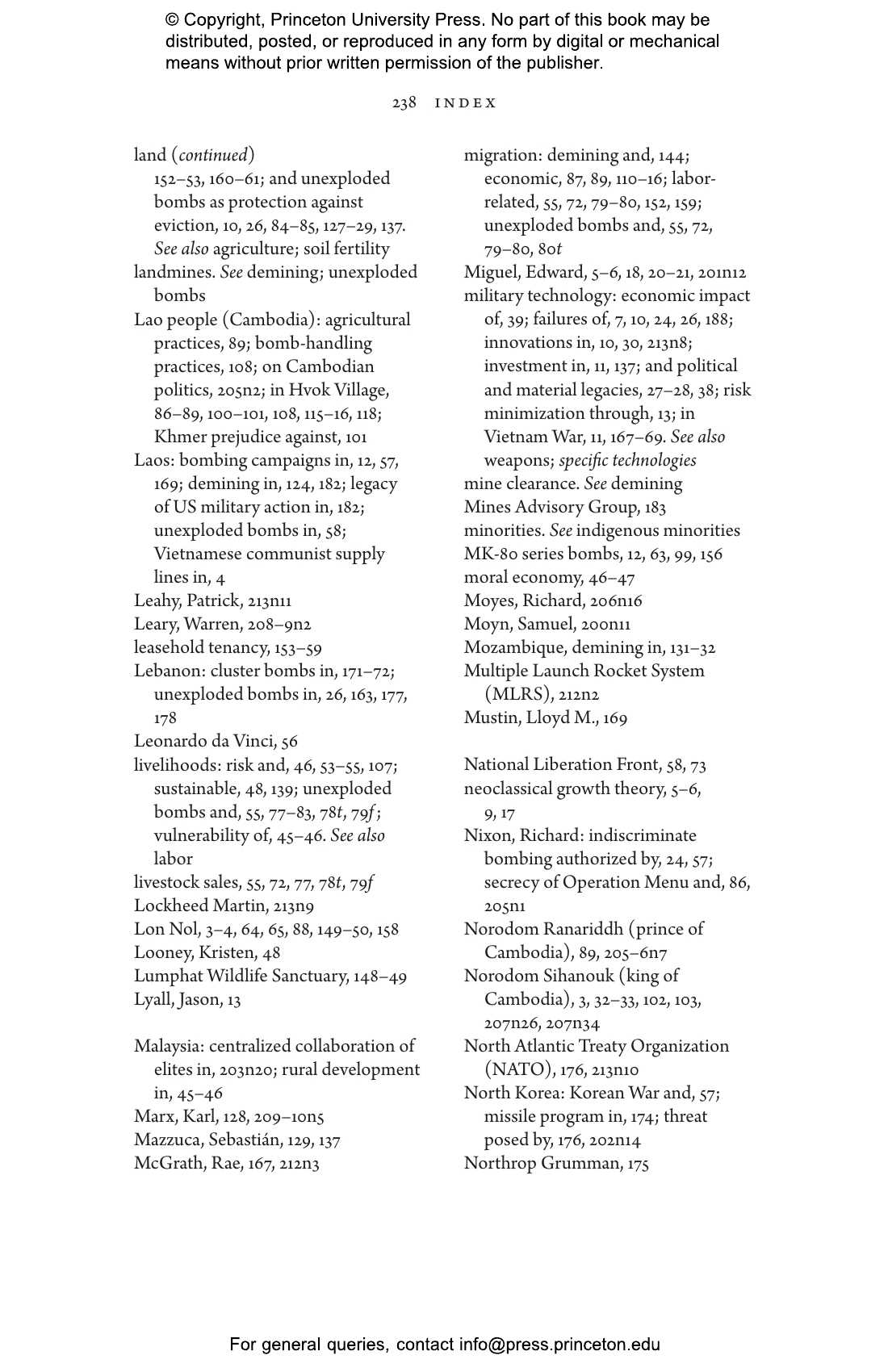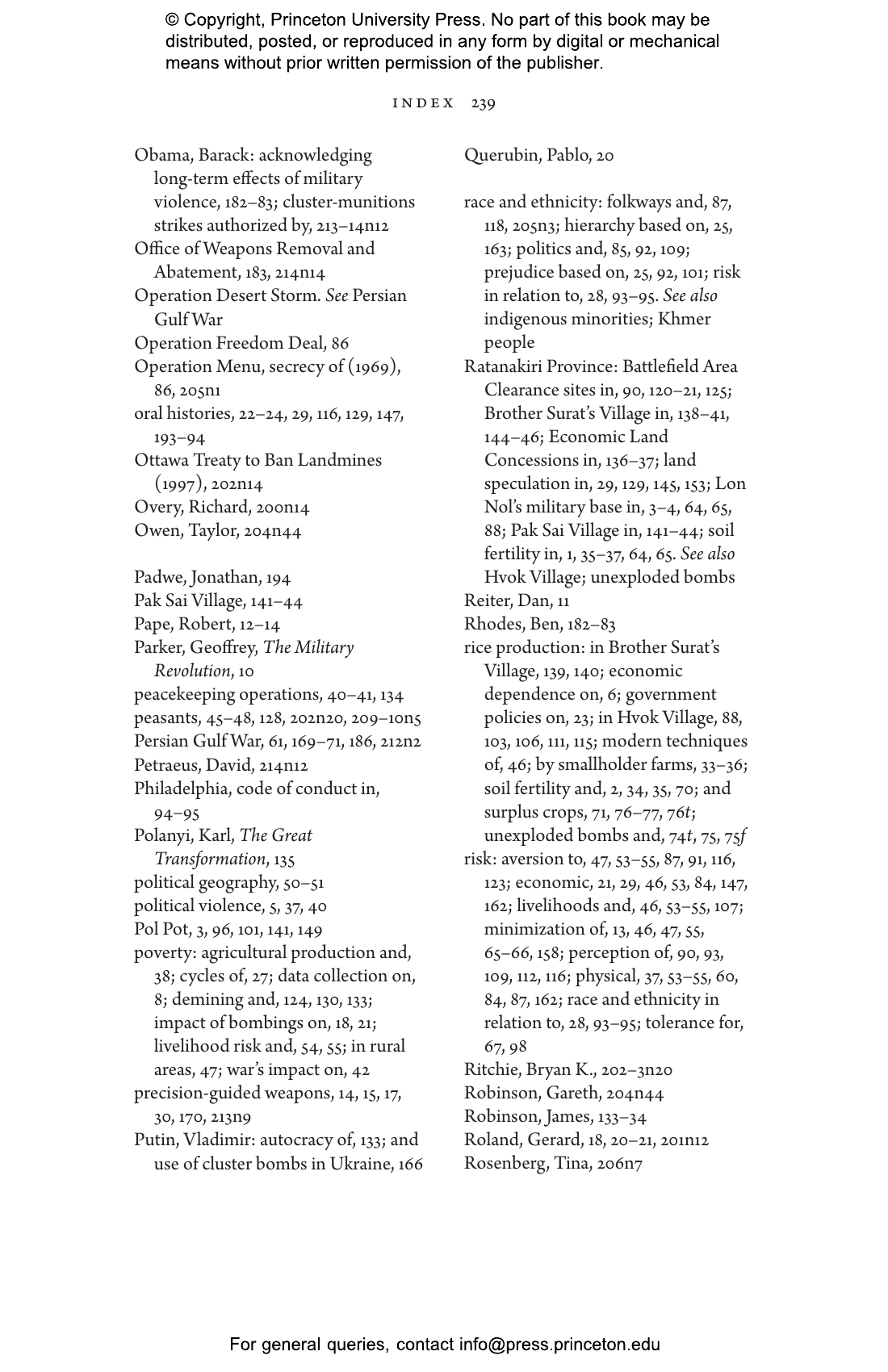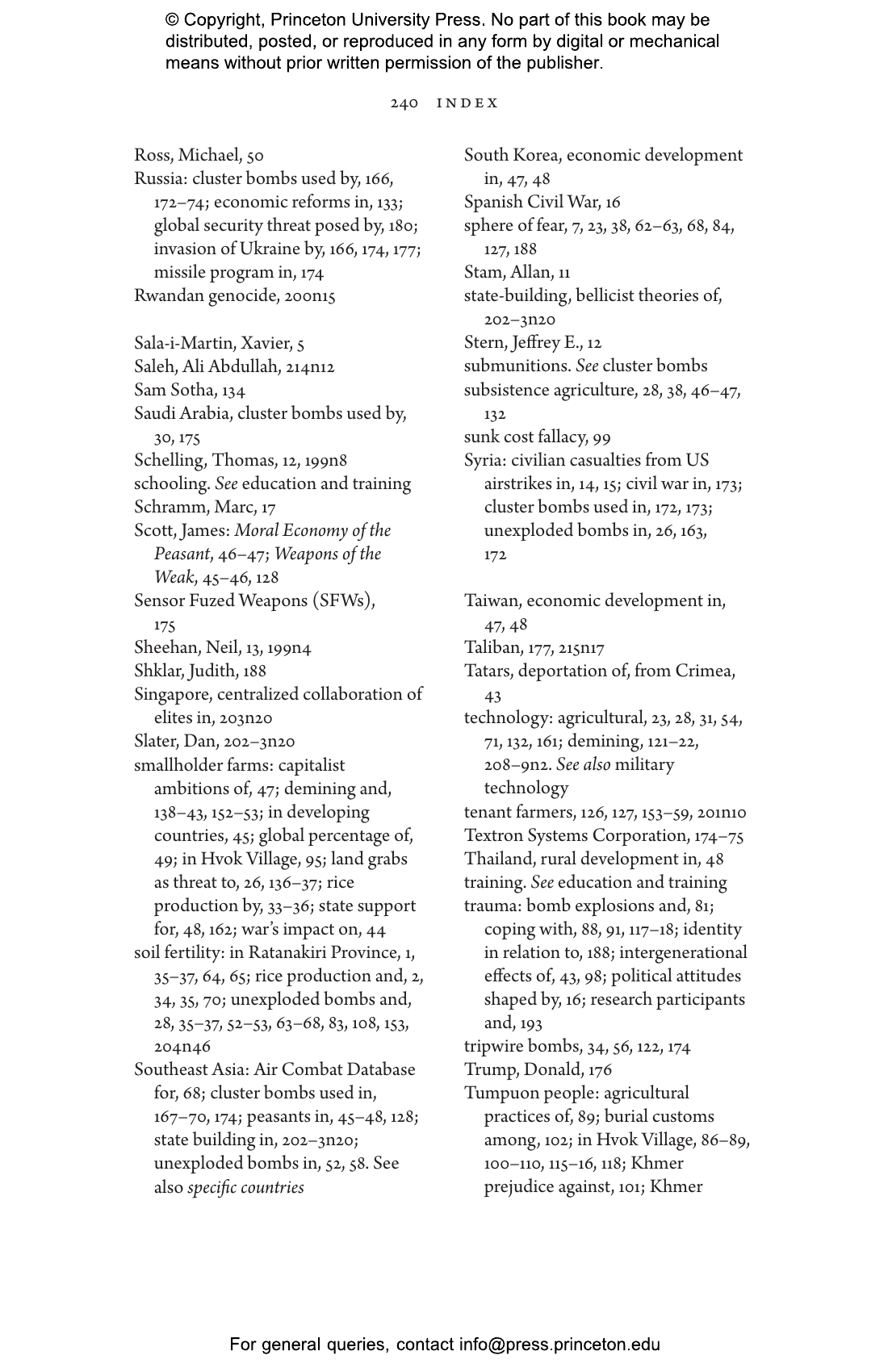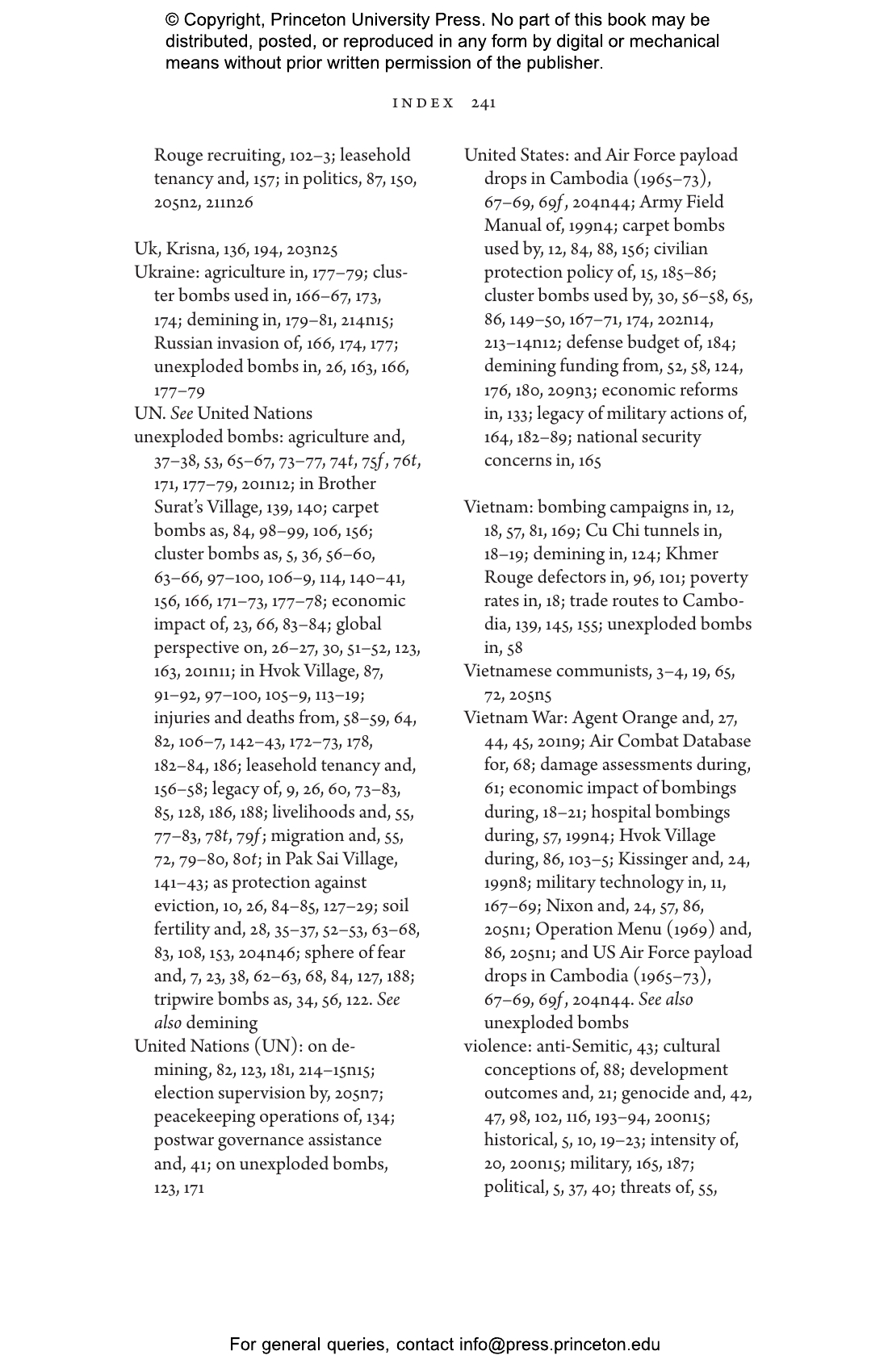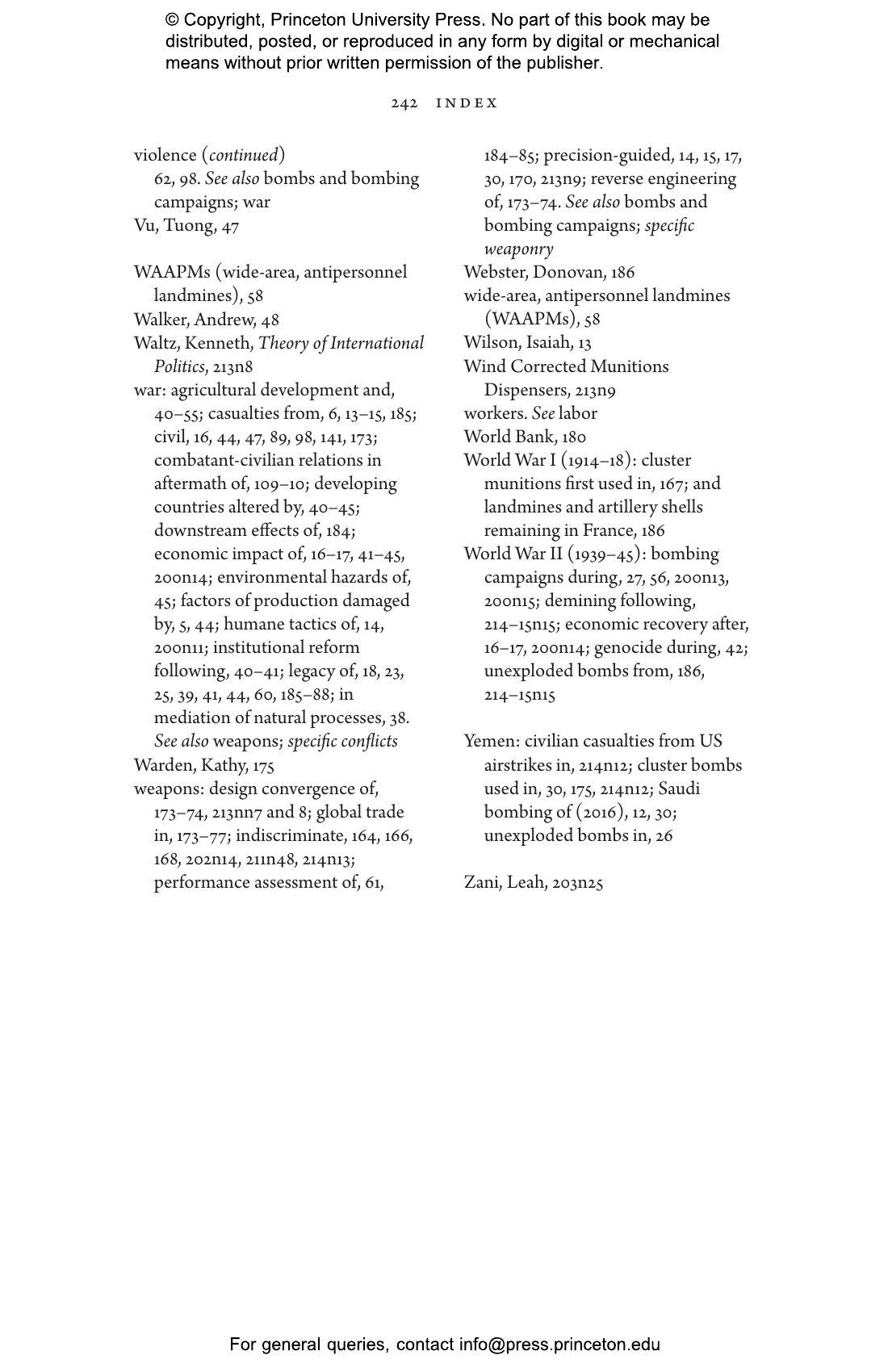Over the course of the Vietnam War, the United States dropped 500,000 tons of bombs over Cambodia鈥攎ore than the combined weight of every man, woman, and child in the country. What began as a secret CIA infiltration of Laos eventually expanded into Cambodia and escalated into a nine-year war over the Ho Chi Minh trail fought primarily with bombs. Fifty years after the last sortie, residents of rural Cambodia are still coping with the unexploded ordnance that covers their land. In When the Bombs Stopped, Erin Lin investigates the consequences of the US bombing campaign across postconflict Cambodia.
Drawing on interviews, original econometric analysis, and extensive fieldwork, Lin upends the usual scholarly perspective on the war and its aftermath, presenting the viewpoint of those who suffered the bombing rather than those who dropped the bombs. She shows that Cambodian farmers stay at a subsistence level because much of their land is too dangerous to cultivate鈥攁nd yet, paradoxically, the same bombs that endanger and impoverish farming communities also protect them, deterring predatory elites from grabbing and commodifying their land. Lin argues that the half-century legacy of American bombs has sedimented the war into the layers of contemporary Cambodian society. Policies aimed at developing or modernizing Cambodia, whether economic liberalization or authoritarian consolidation, must be realized in an environment haunted by the violence of the past. As the stories Lin captures show, the bombing served as a critical juncture in these farming villages, marking the place in time where development stopped.
Erin Lin is assistant professor of political science at the Ohio State University.
“This is a devastating look at the long aftermath of the massive American bombing of Cambodia. Through an impressive mix of ethnographic observation, historical data, and mass-sample surveys, Erin Lin shows the enduring economic consequences of that colossal tonnage of bombs—a vital reminder of what warfare means for its poorest and most vulnerable targets.”—Gary Bass, Princeton University, author of The Blood Telegram and Judgment at Tokyo
“An astonishing book. With rigorous research, Lin carefully lays out the effects of fear on economic growth in postwar areas of Cambodia. Lin shows how cluster munitions continue to confound development, despite policy changes, agricultural development, and decades of postwar aid. Her book validates the power of an ethnographic approach to reorient economic analysis, infusing scholarship with the moral necessity of linking military technologies to the lives of the people who experience their violence.”—Leah Zani, author of Strike Patterns: Notes from Postwar Laos
“This intimate account of lingering postwar damage in rural Cambodia is, like the lasting social and economic wreckage of American bombing itself, deeply devastating and disturbing. Erin Lin boldly shifts our analytical perspective from the bombers to the bombed.” —Dan Slater, coauthor of From Development to Democracy
“In this important, sobering, and very relevant contribution to our understanding of the legacies of war, Erin Lin traces the long-run consequences of the US bombing of Cambodia. Combining ethnographic research with statistical analysis of declassified US military data, she shows how farmers today live with the risks posed by the many unexploded bombs still found in fertile areas. Demining of farmland is often followed by predatory land grabbing, contributing to rural inequality in the long shadow of war.”—Elisabeth Jean Wood, Yale University
“With wide-ranging curiosity and scholarship, Erin Lin has investigated the lethal legacy of the hundreds of thousands of US bombs dropped decades ago on Cambodia. In When the Bombs Stopped, she ties the continued hardships and dangers for farmers and their farmland from the buried munitions to the deeply corrupt and unequal development of the country. Hers is a thought provoking study with serious implications for today’s world.”—Elizabeth Becker, author of When the War Was Over: Cambodia and the Khmer Rouge Revolution
